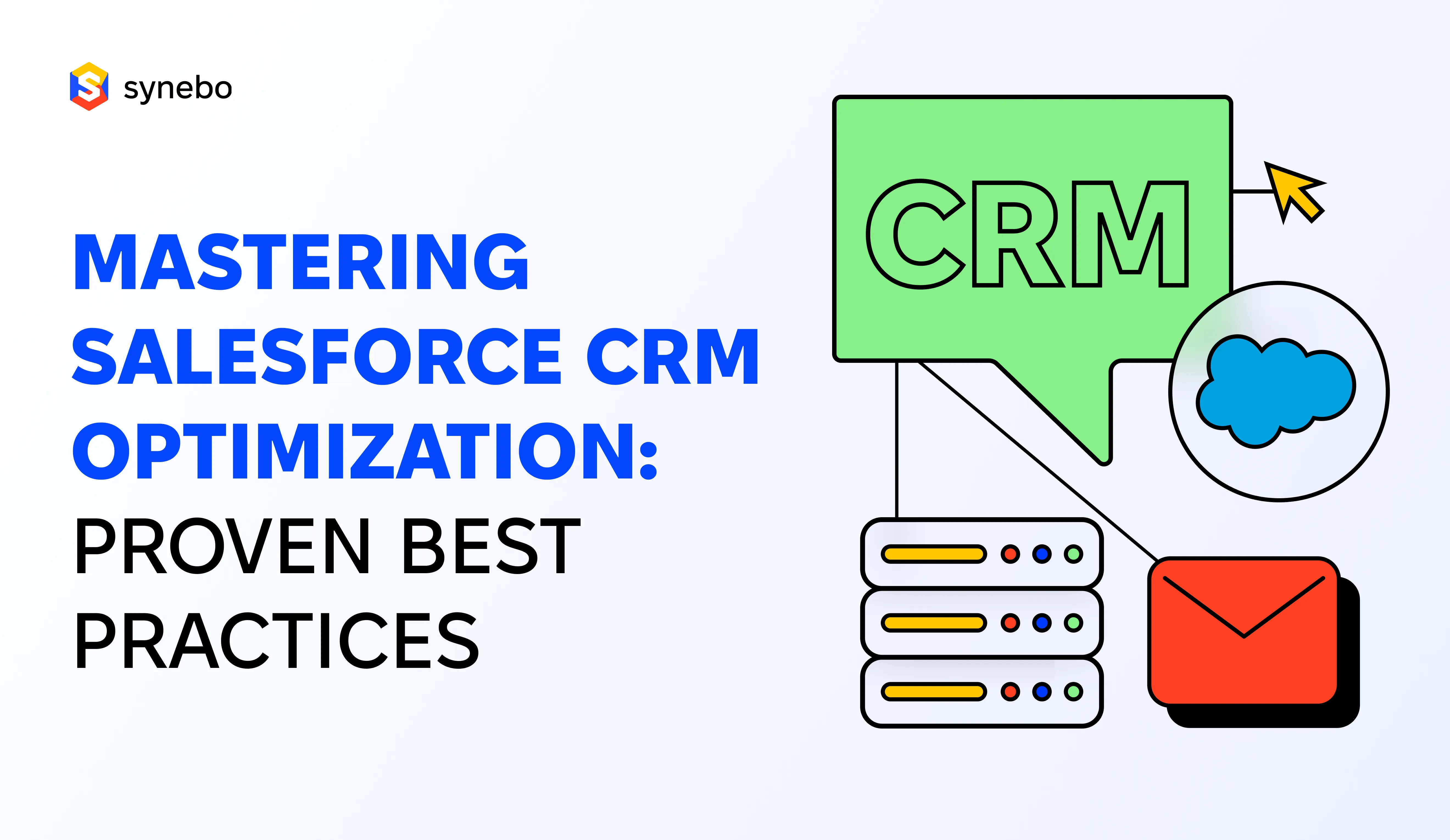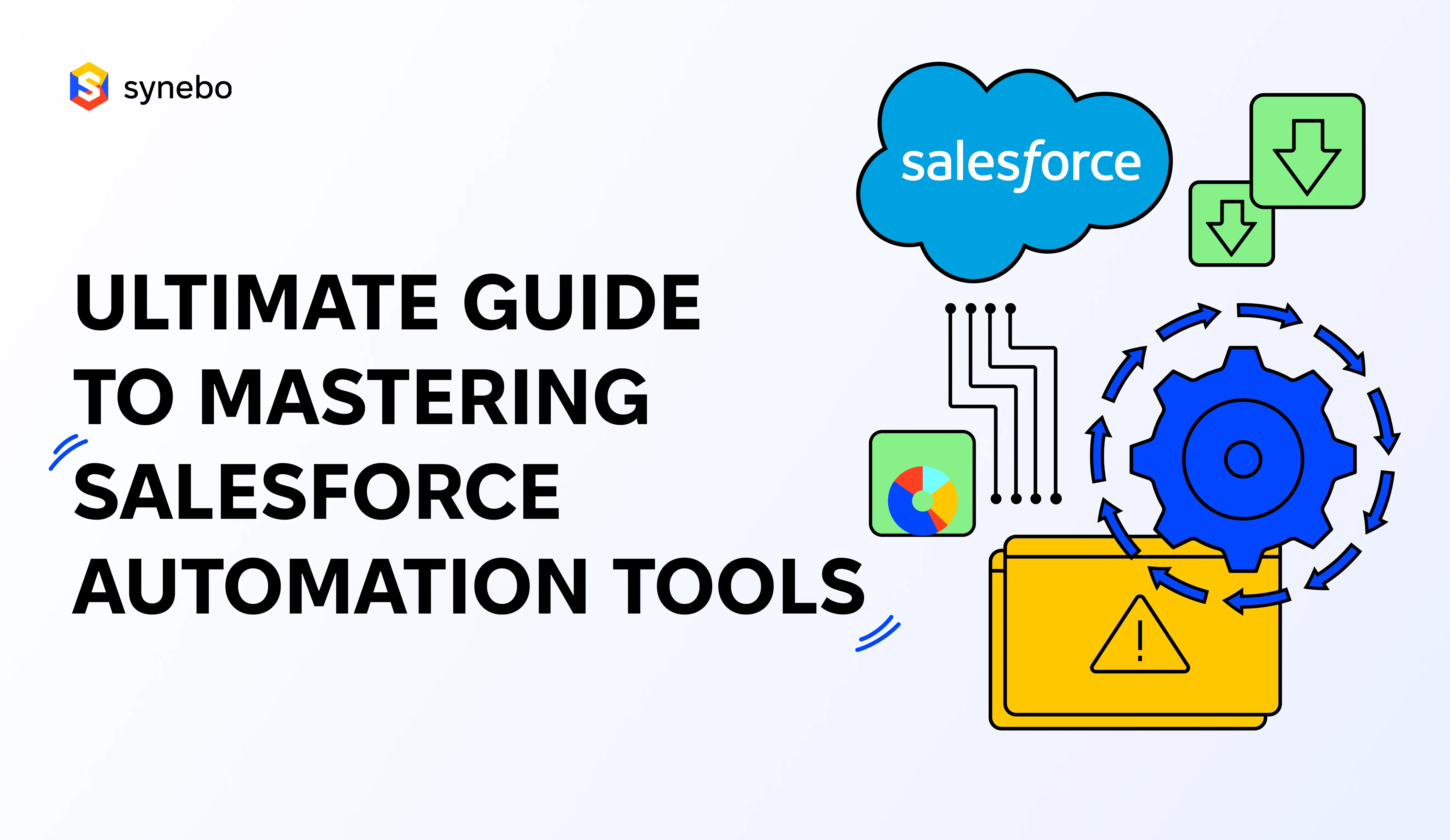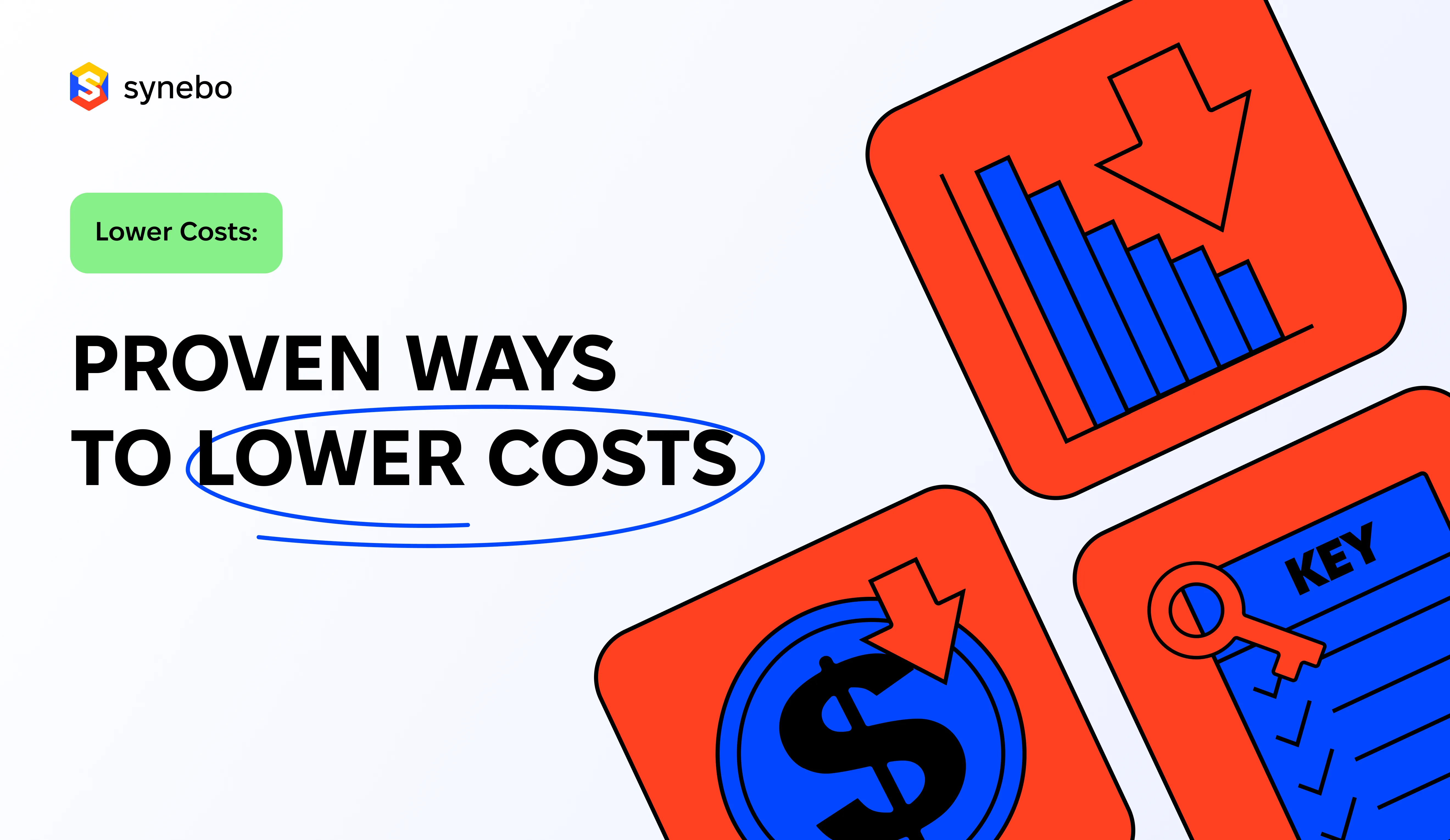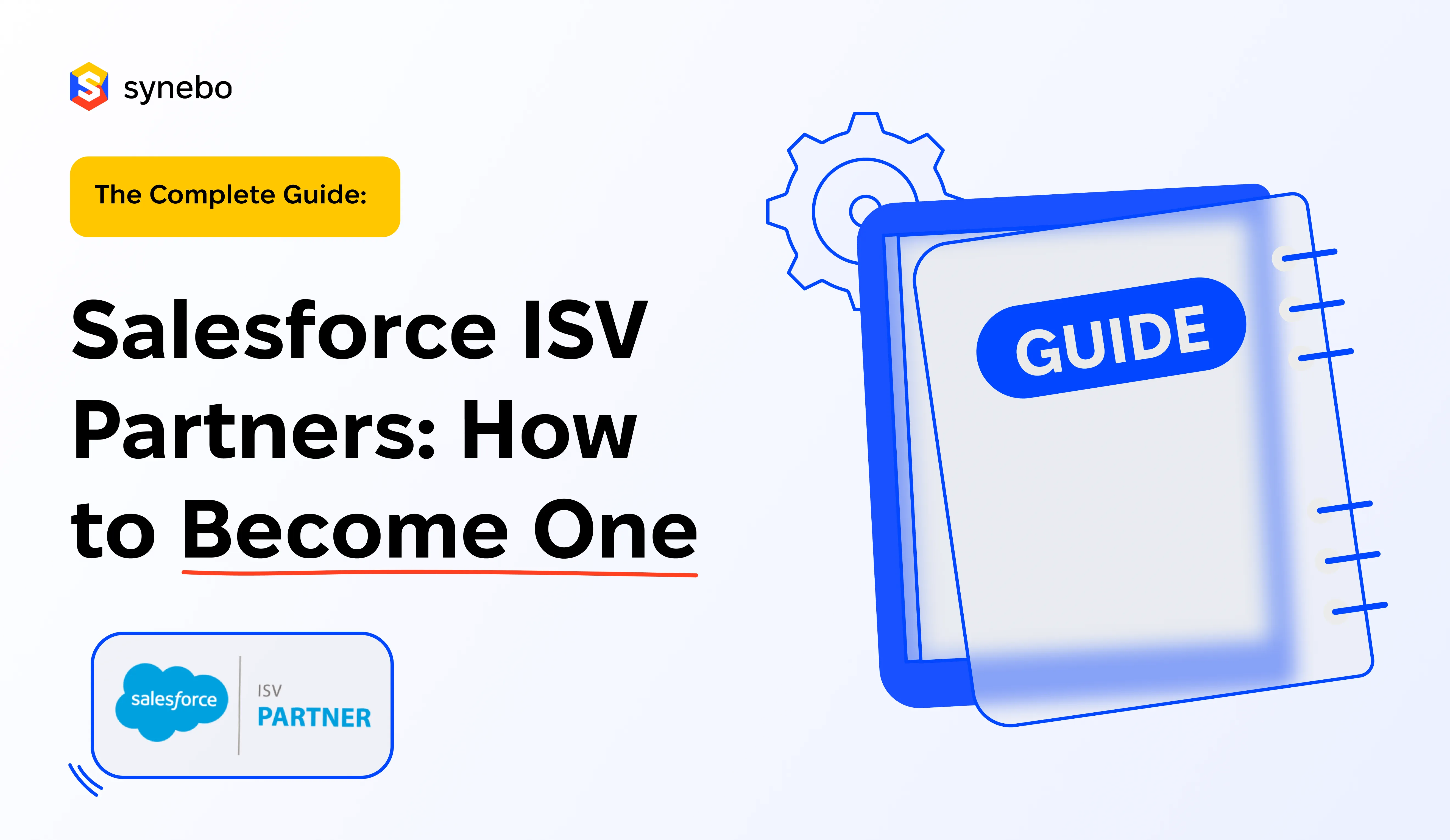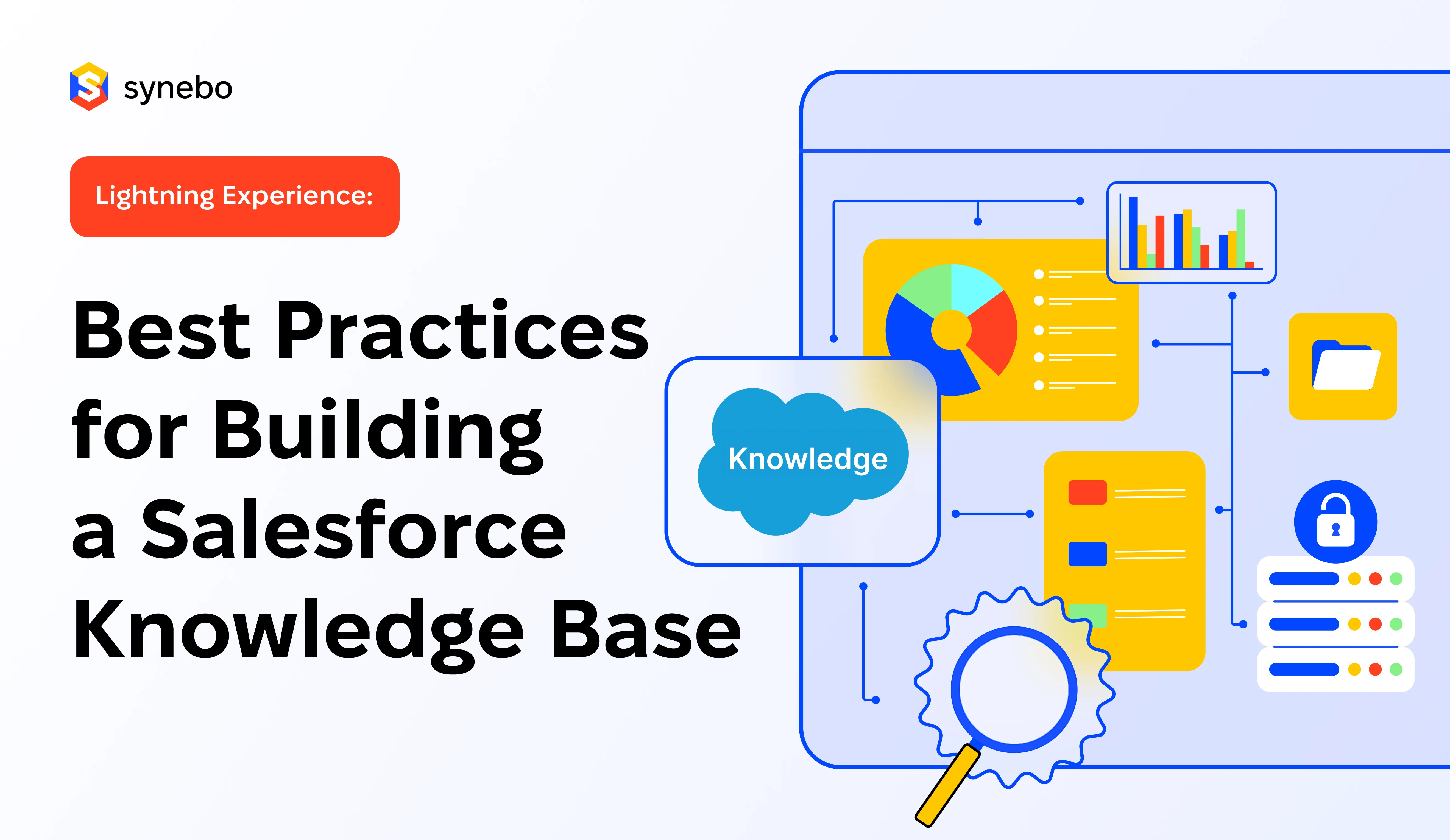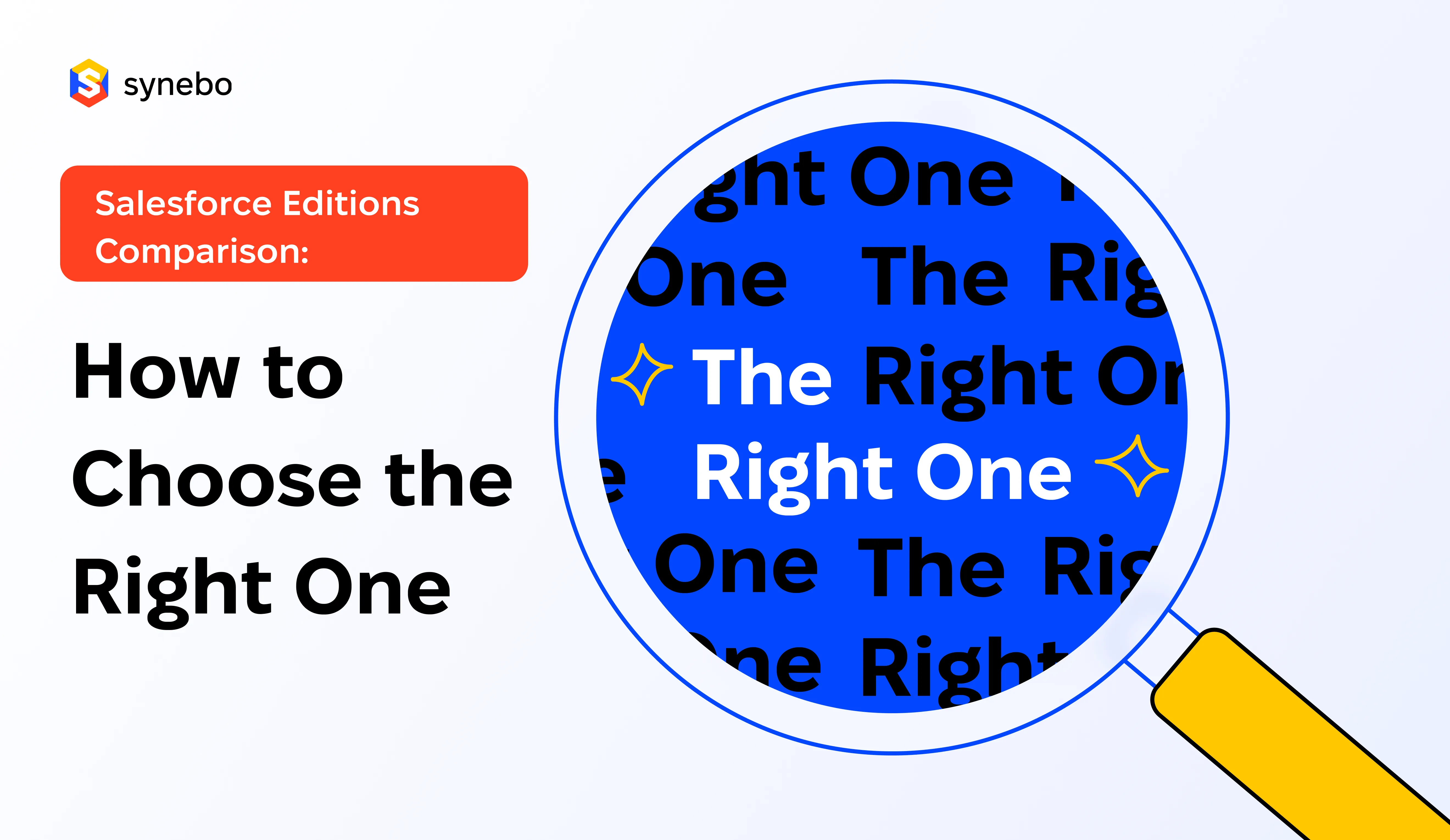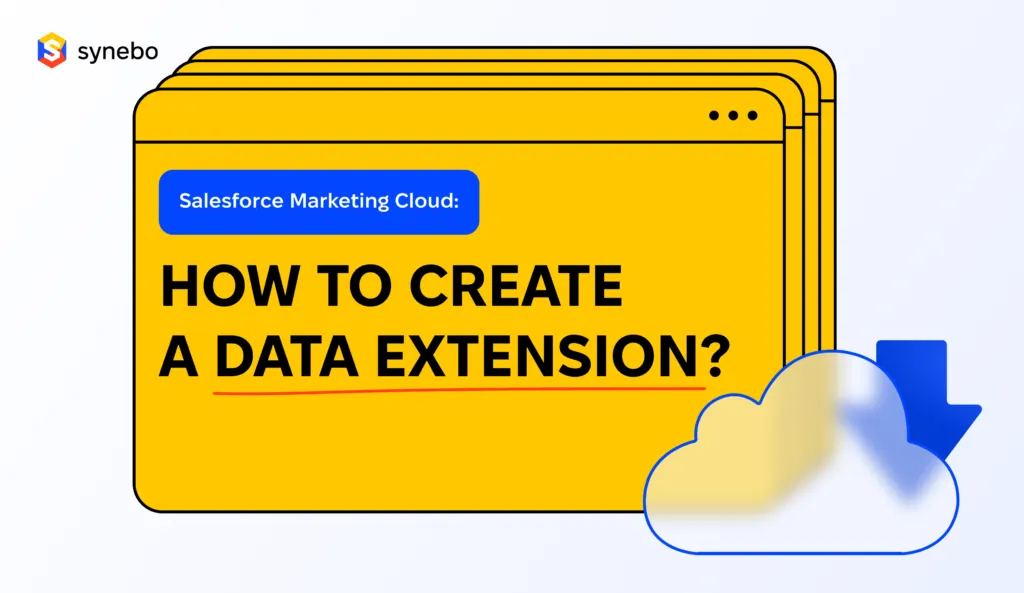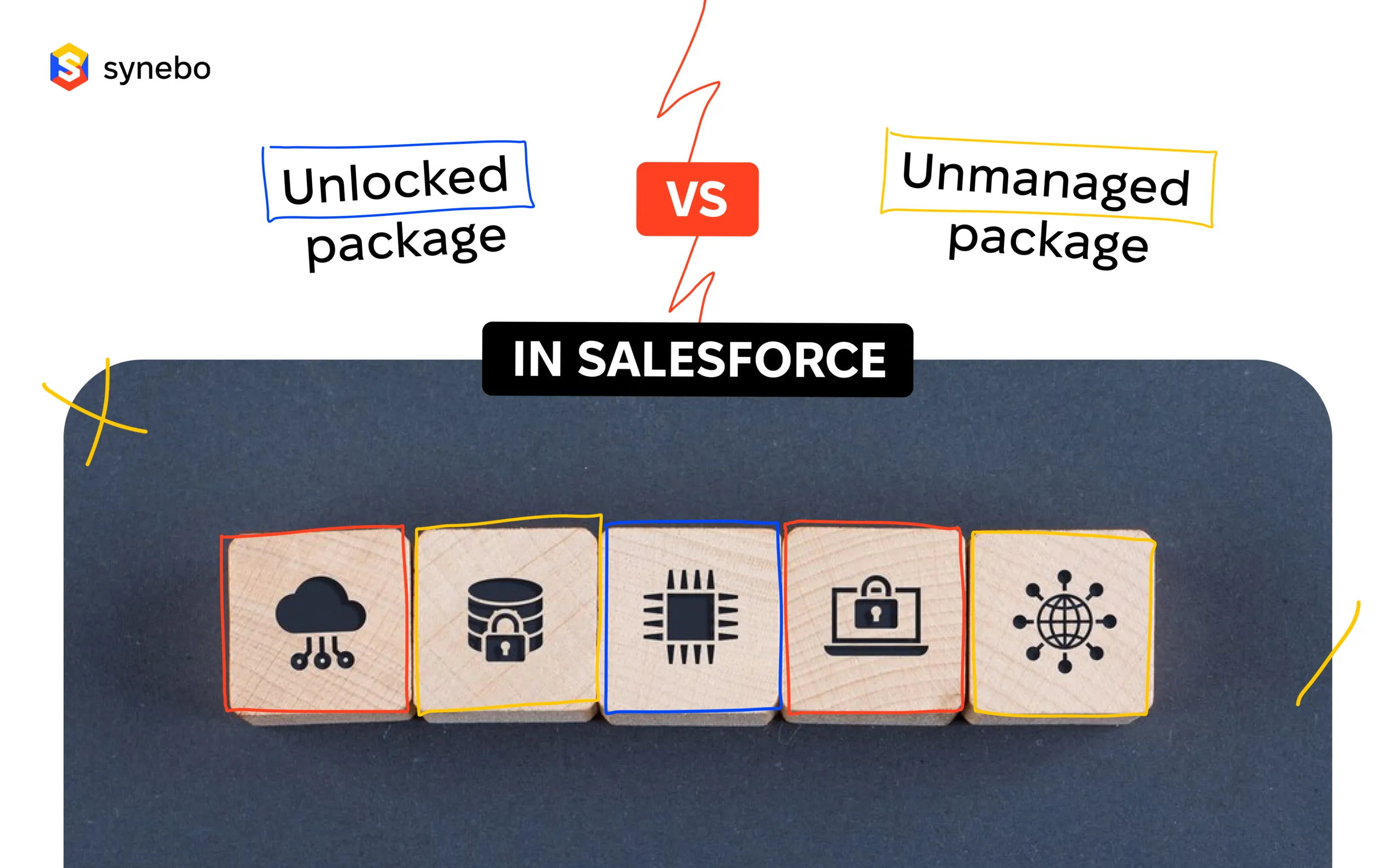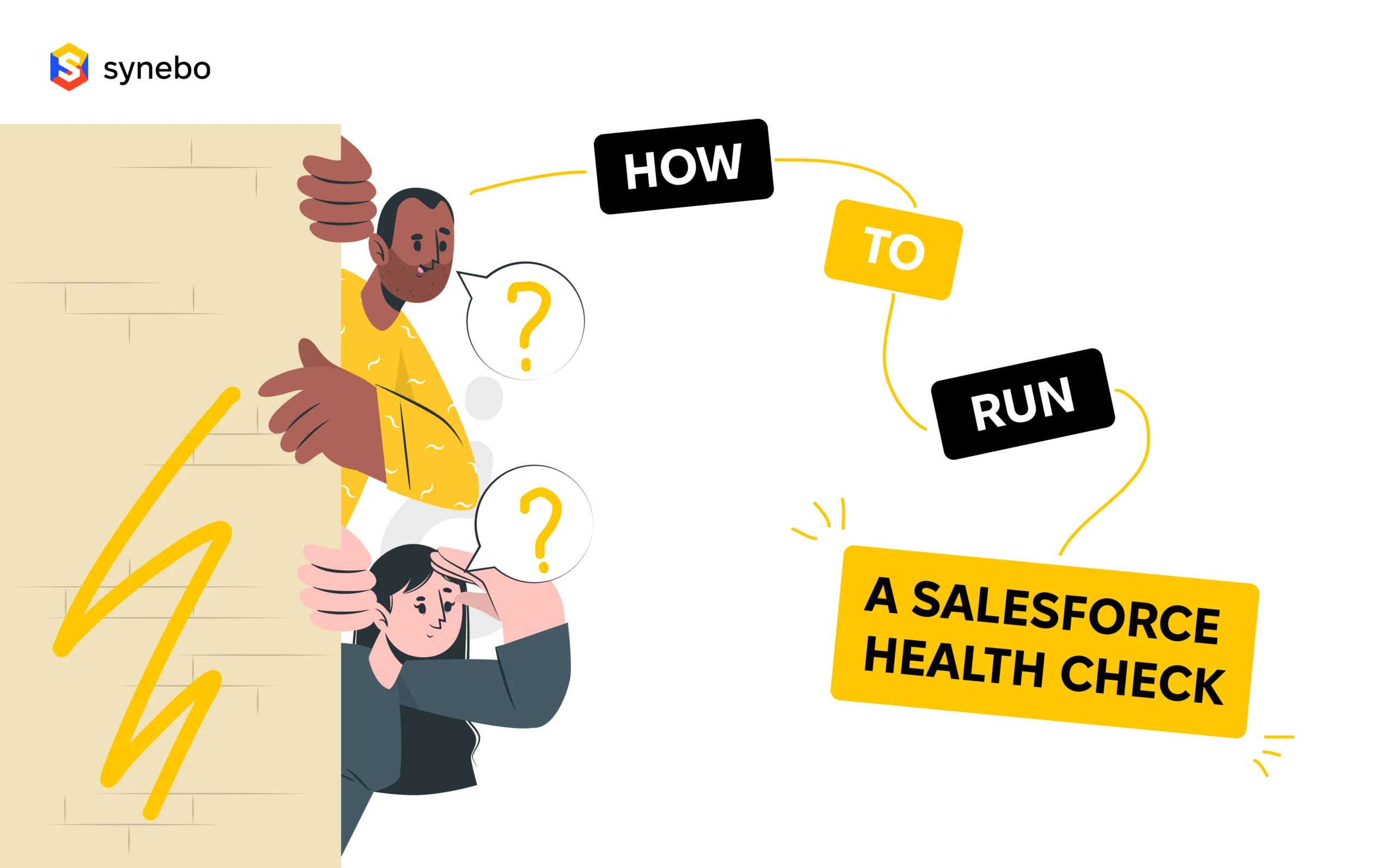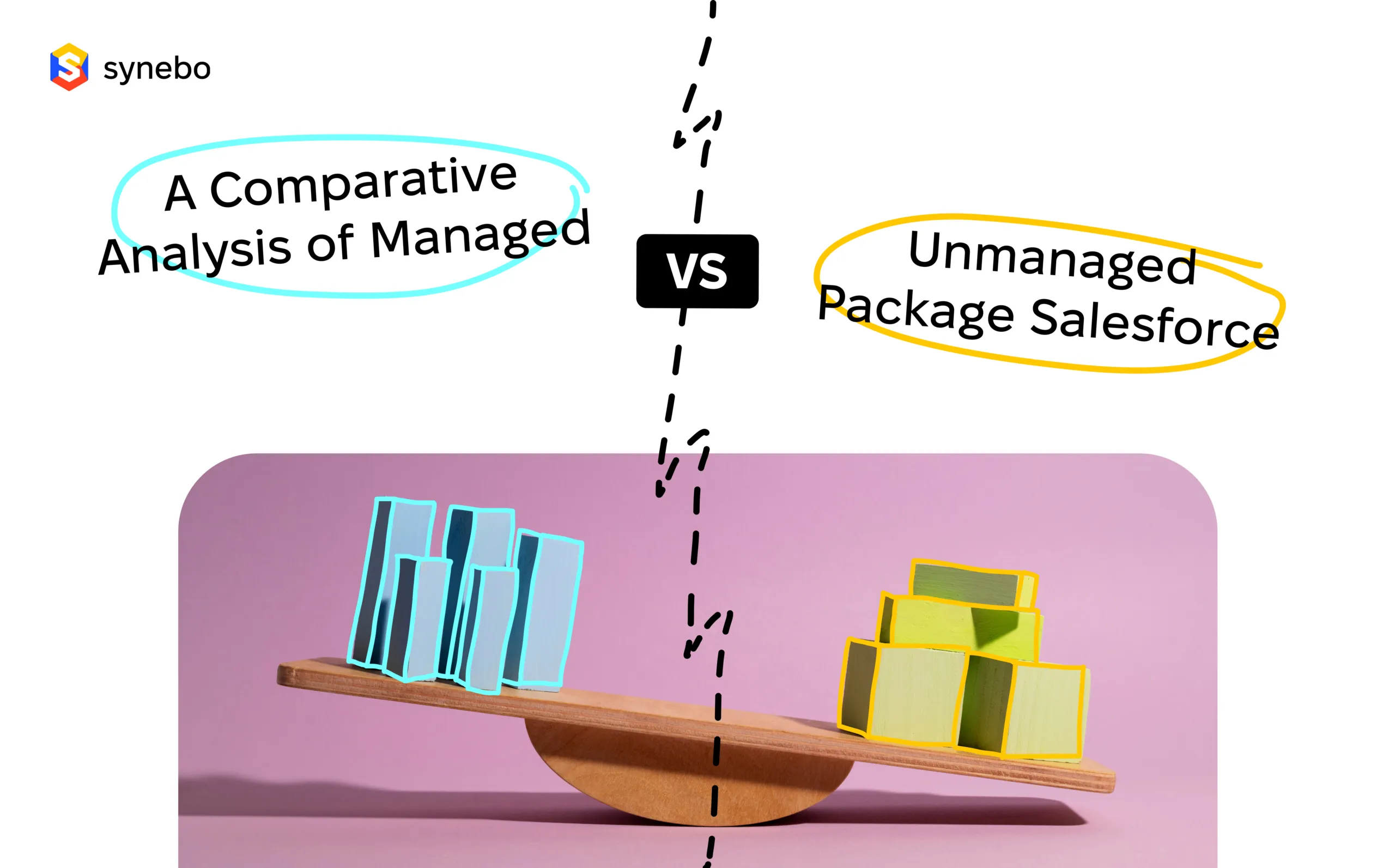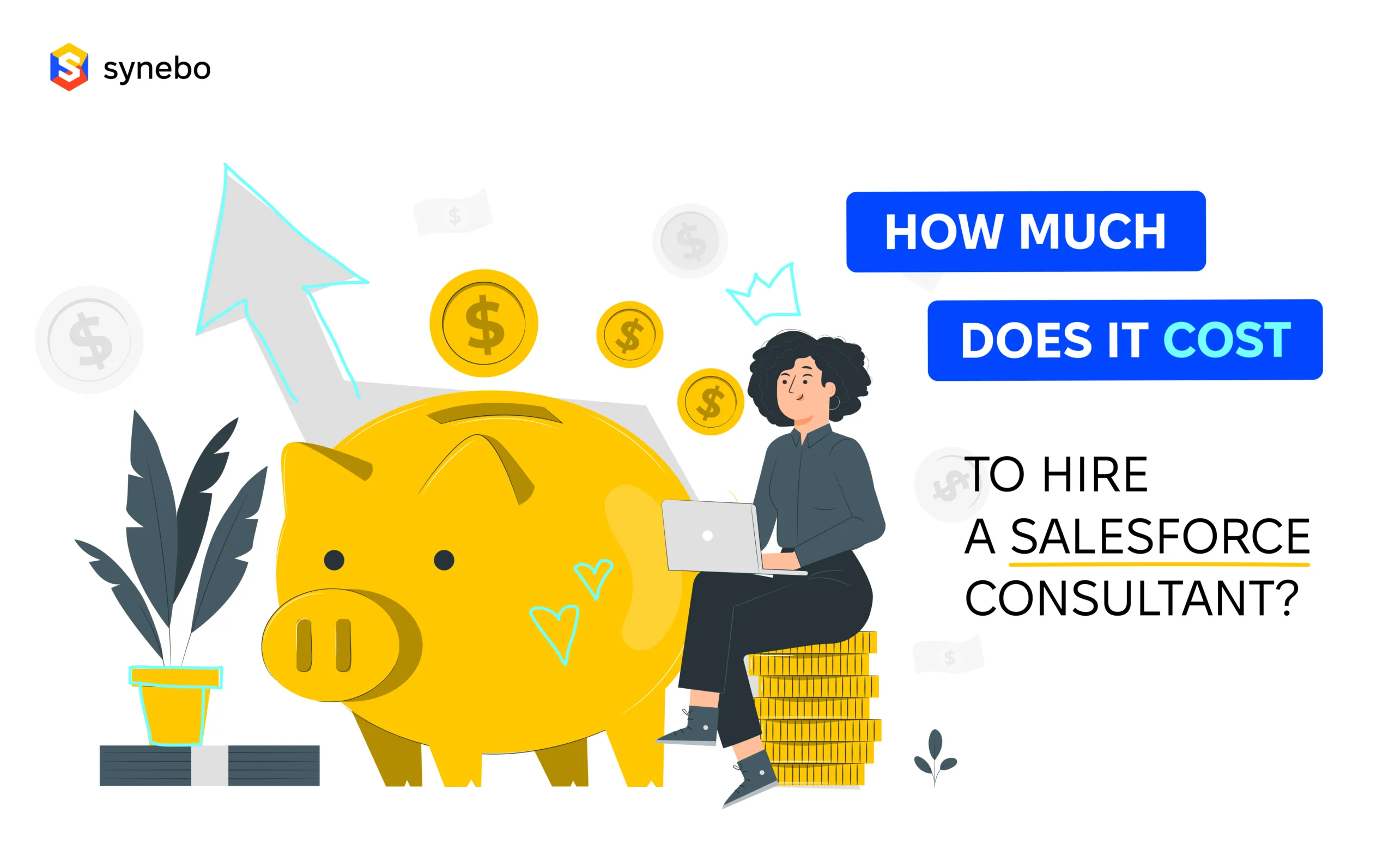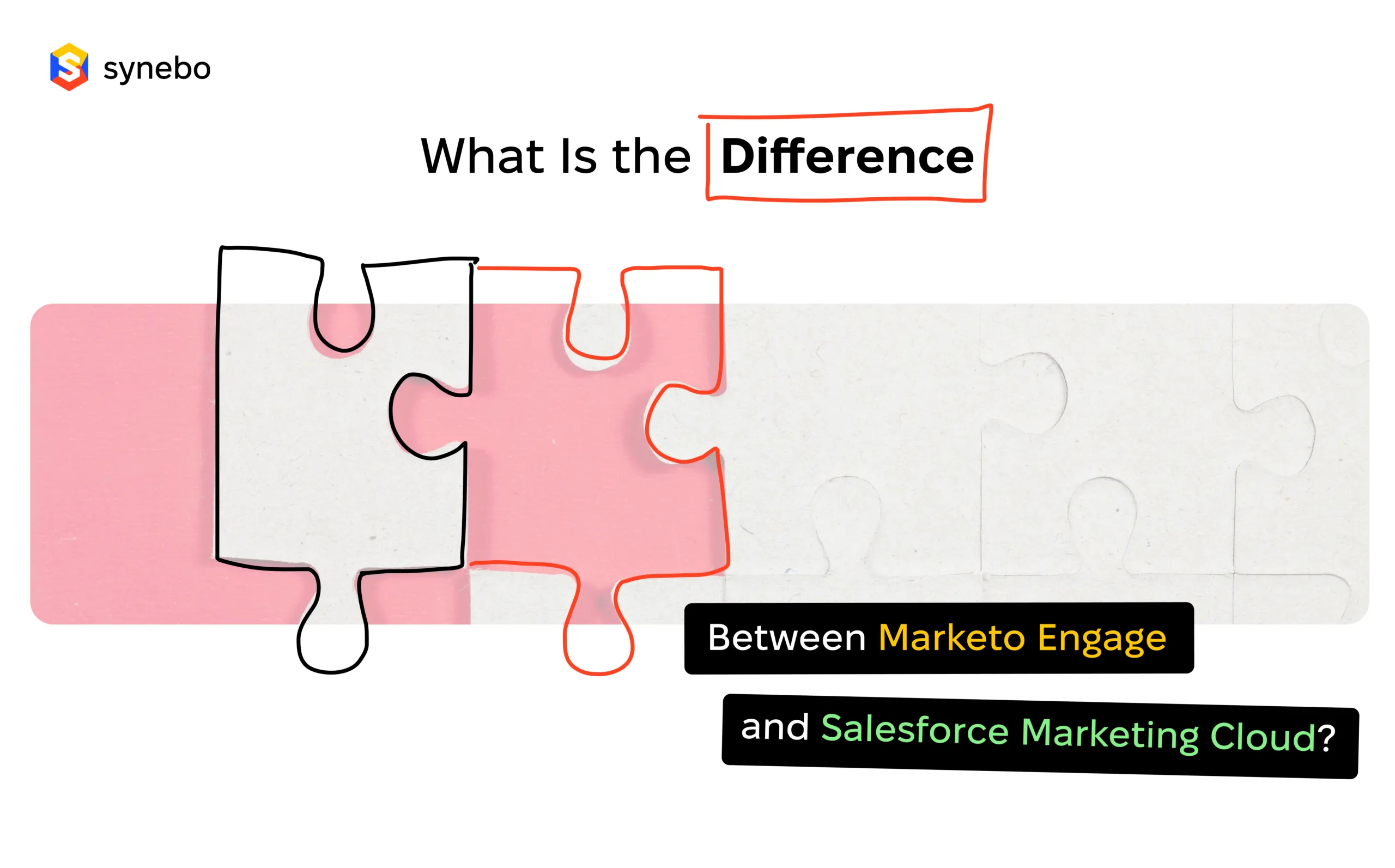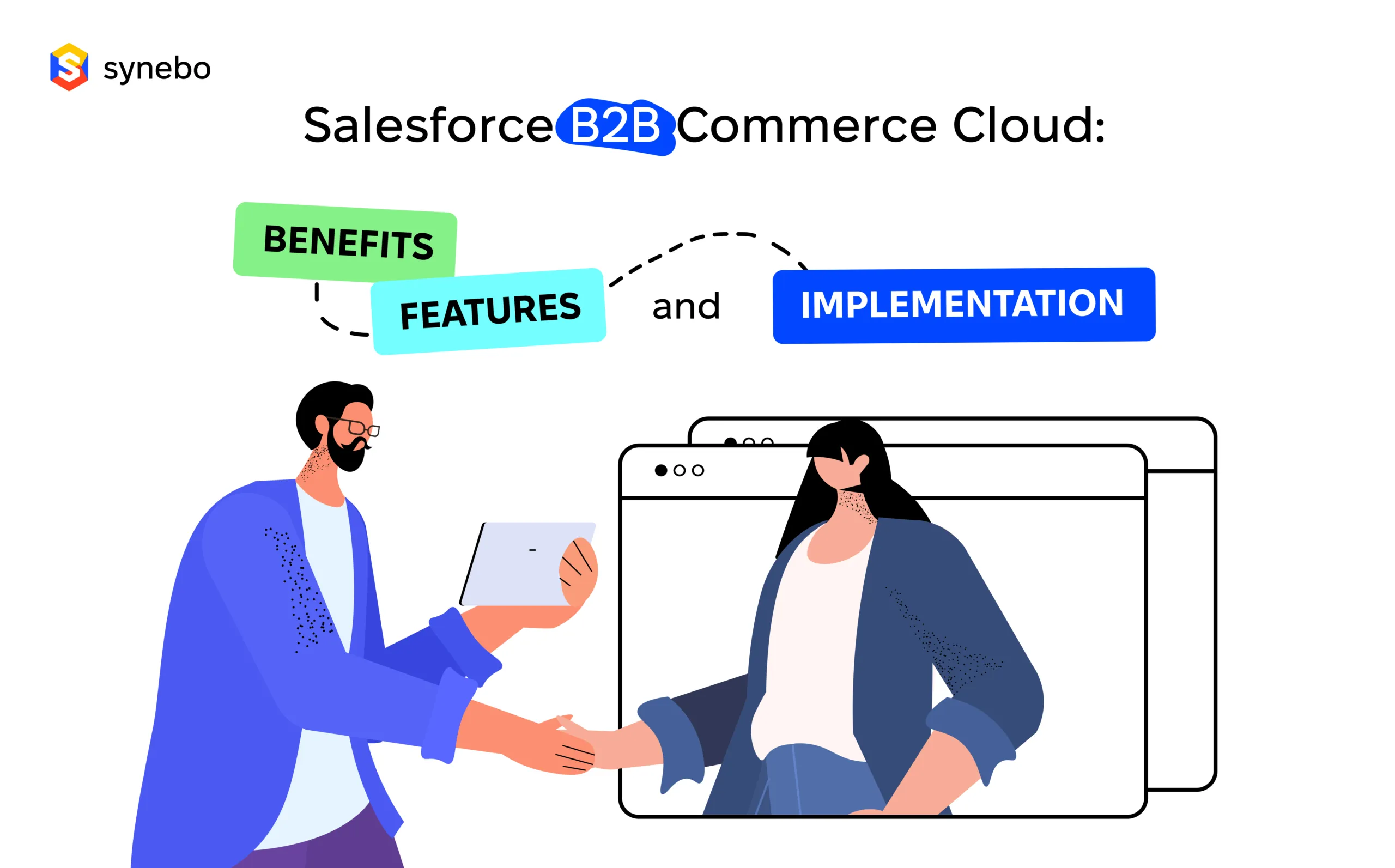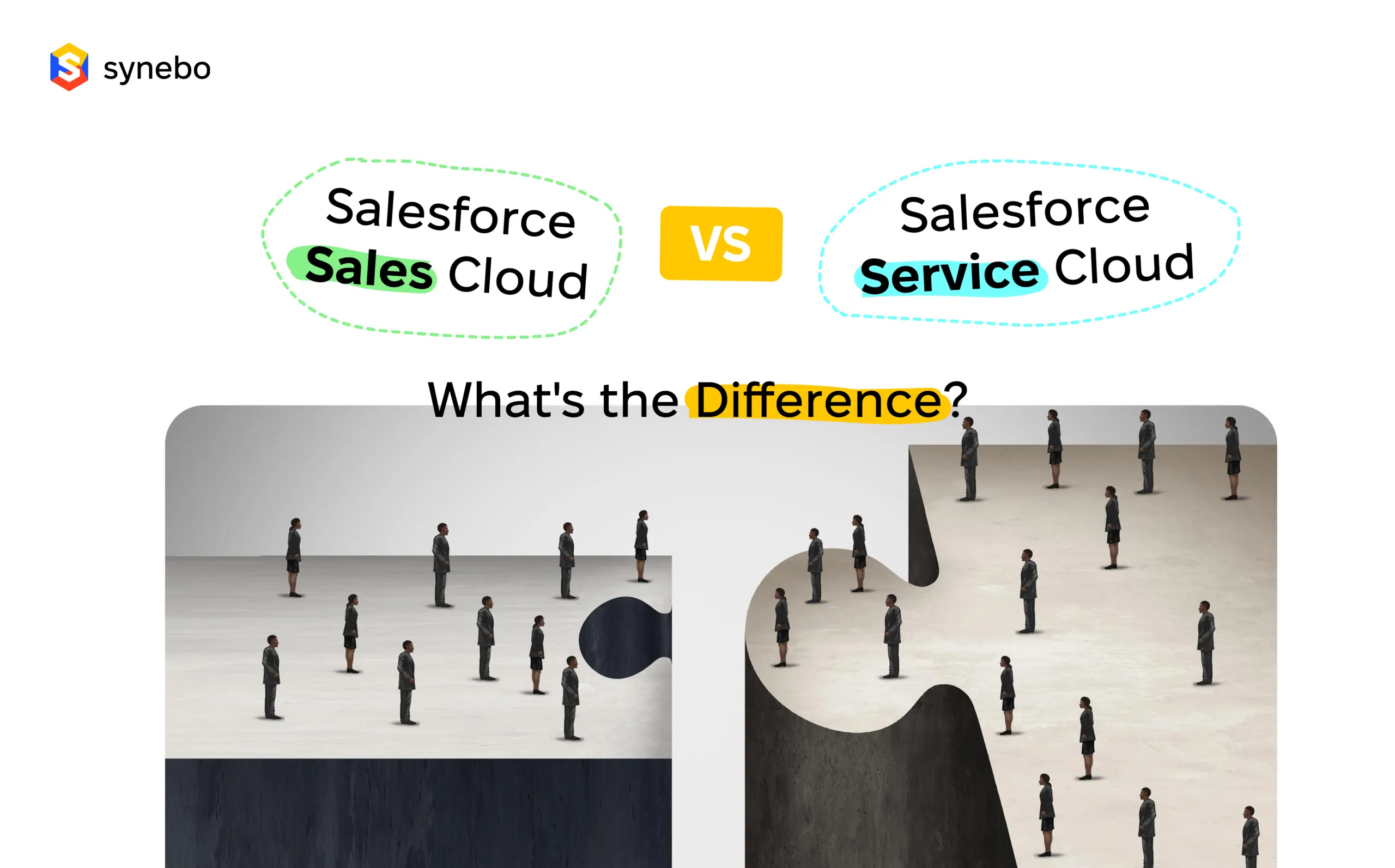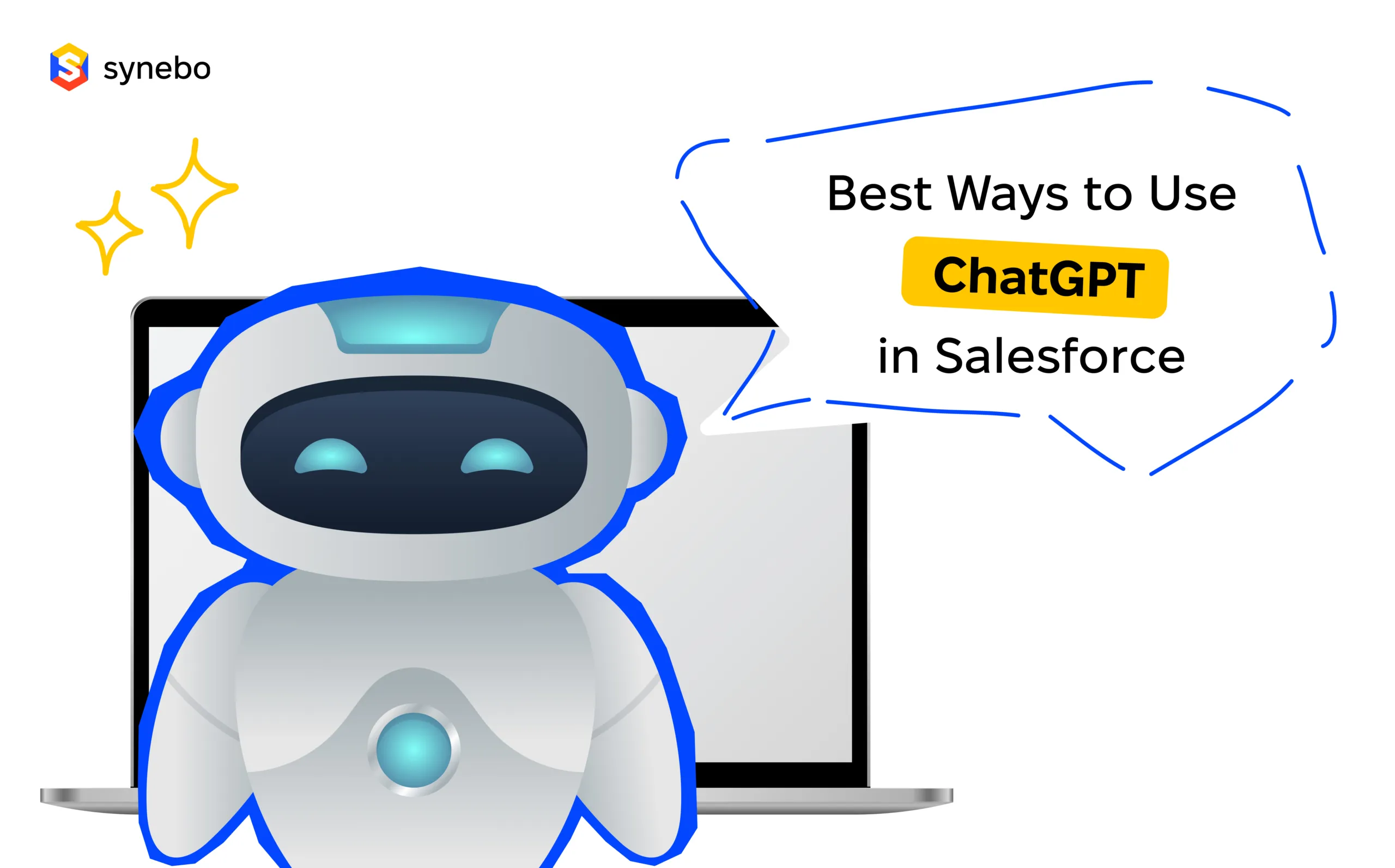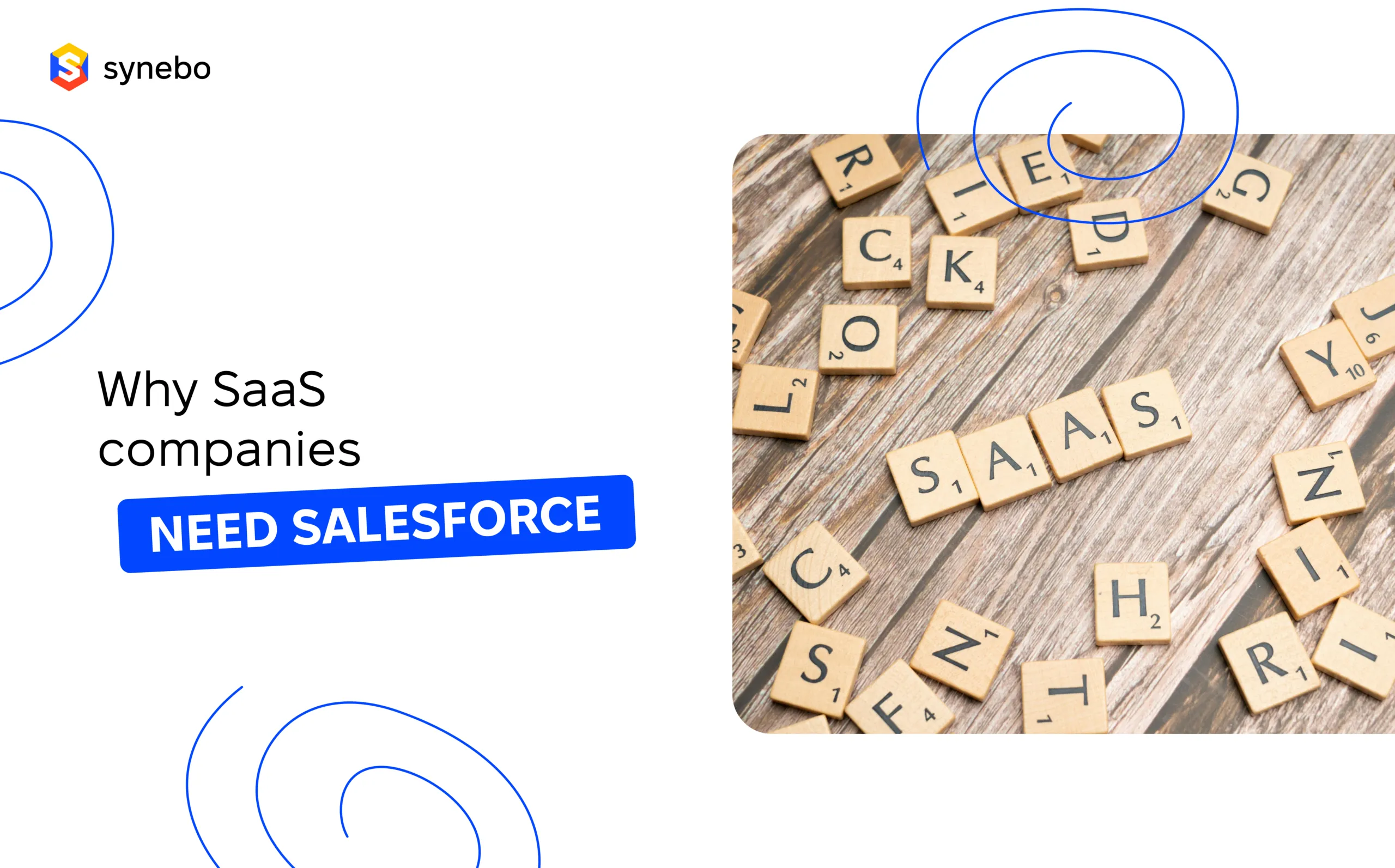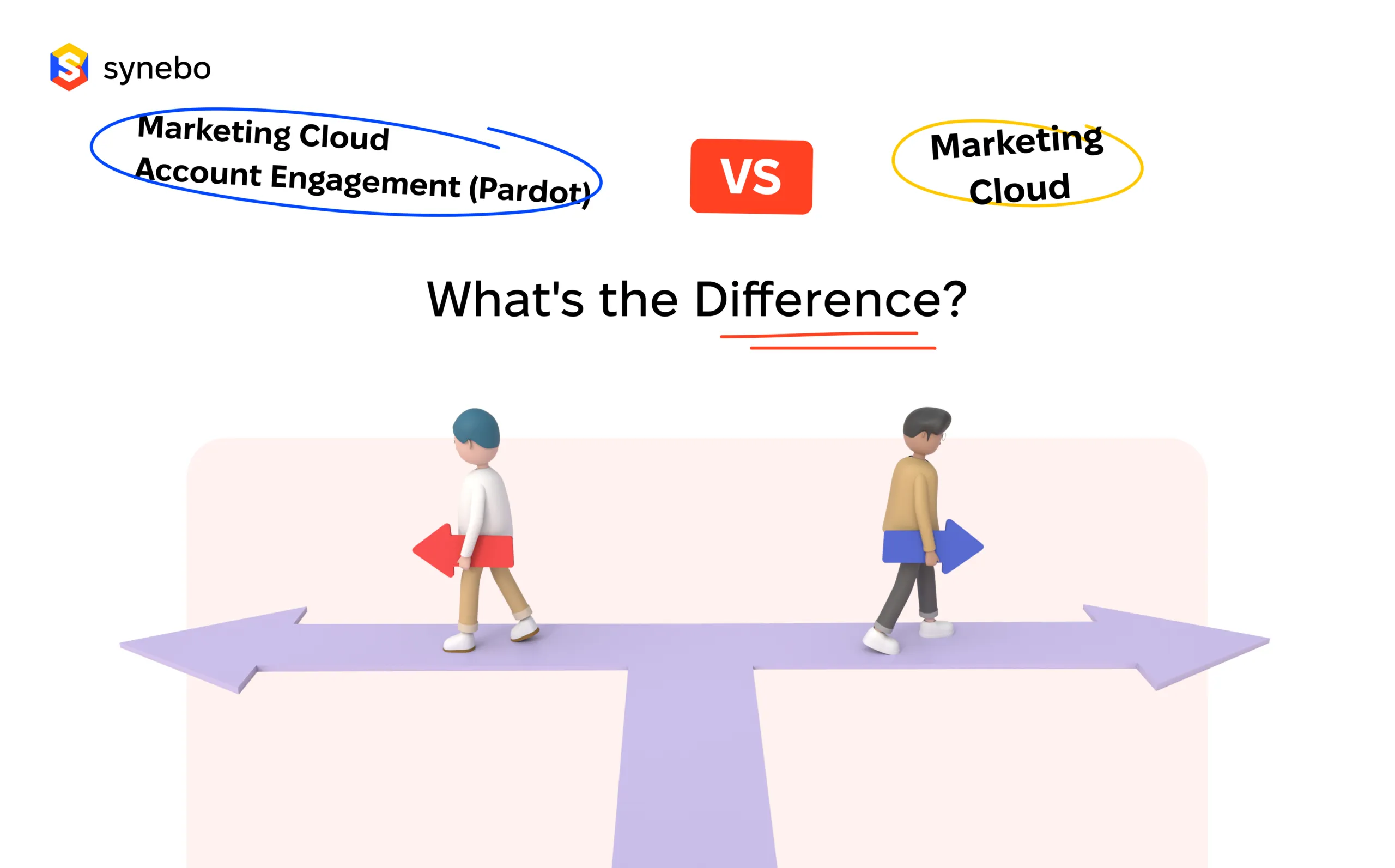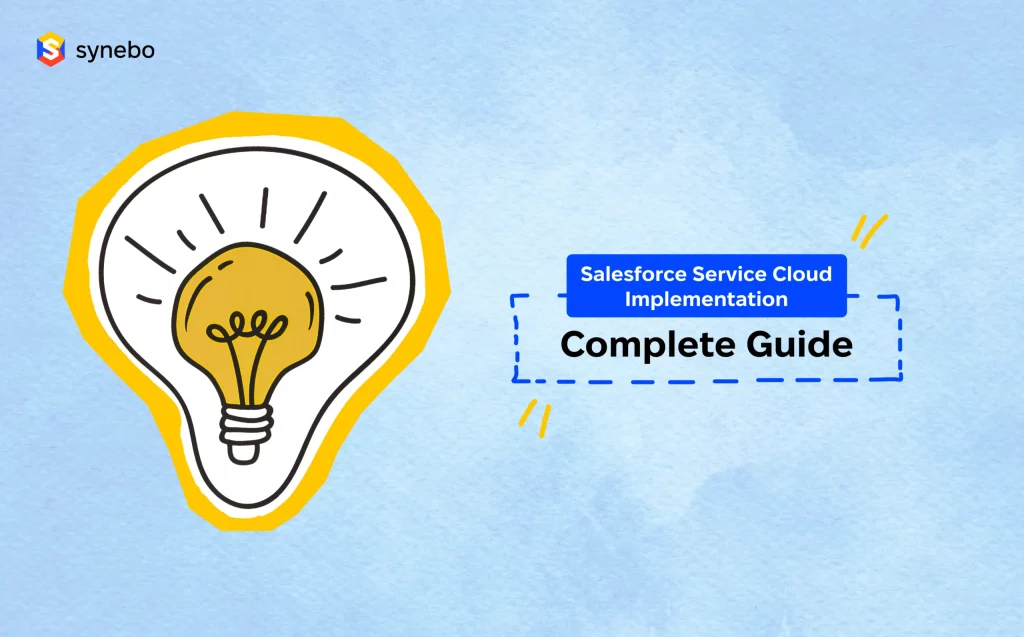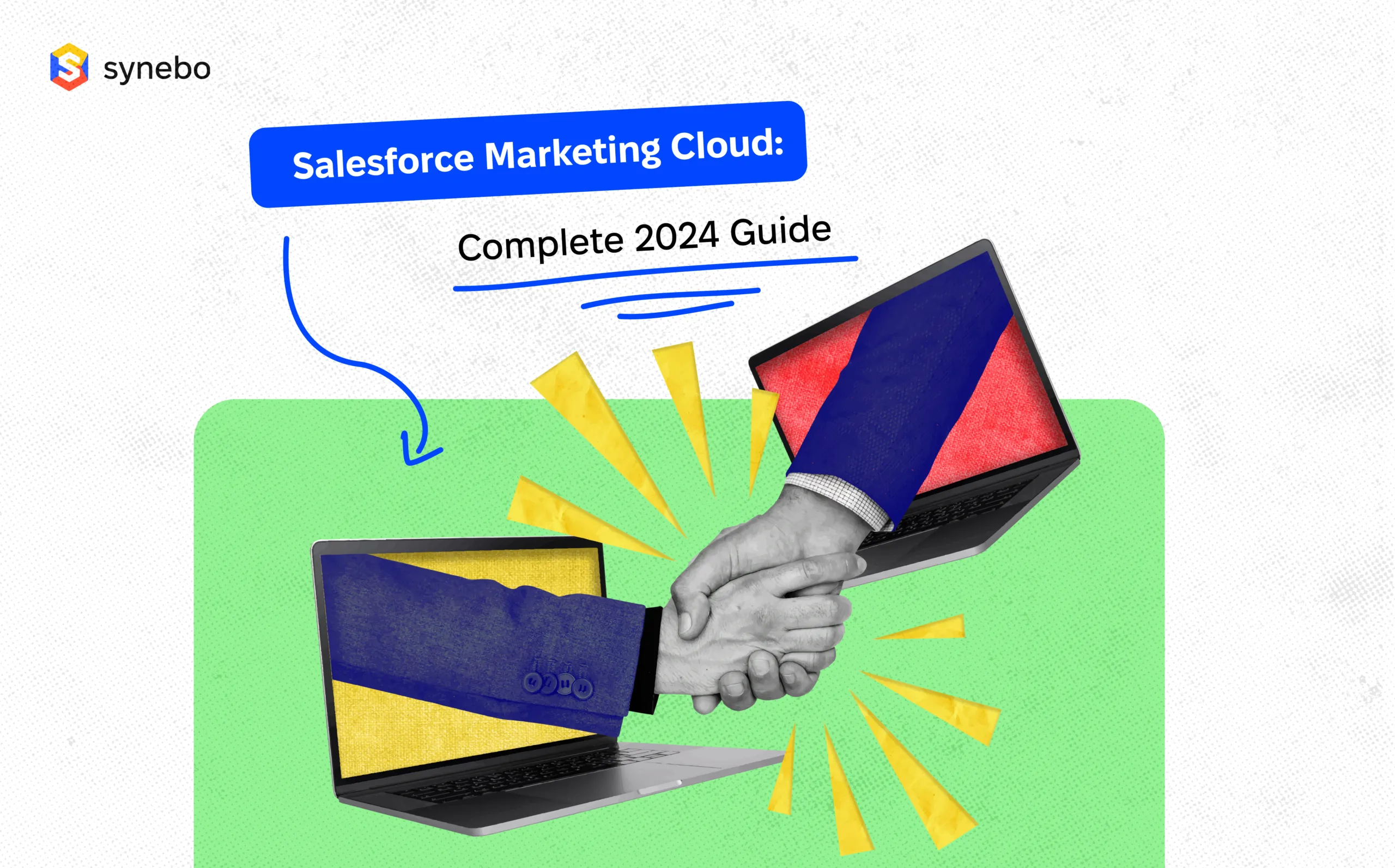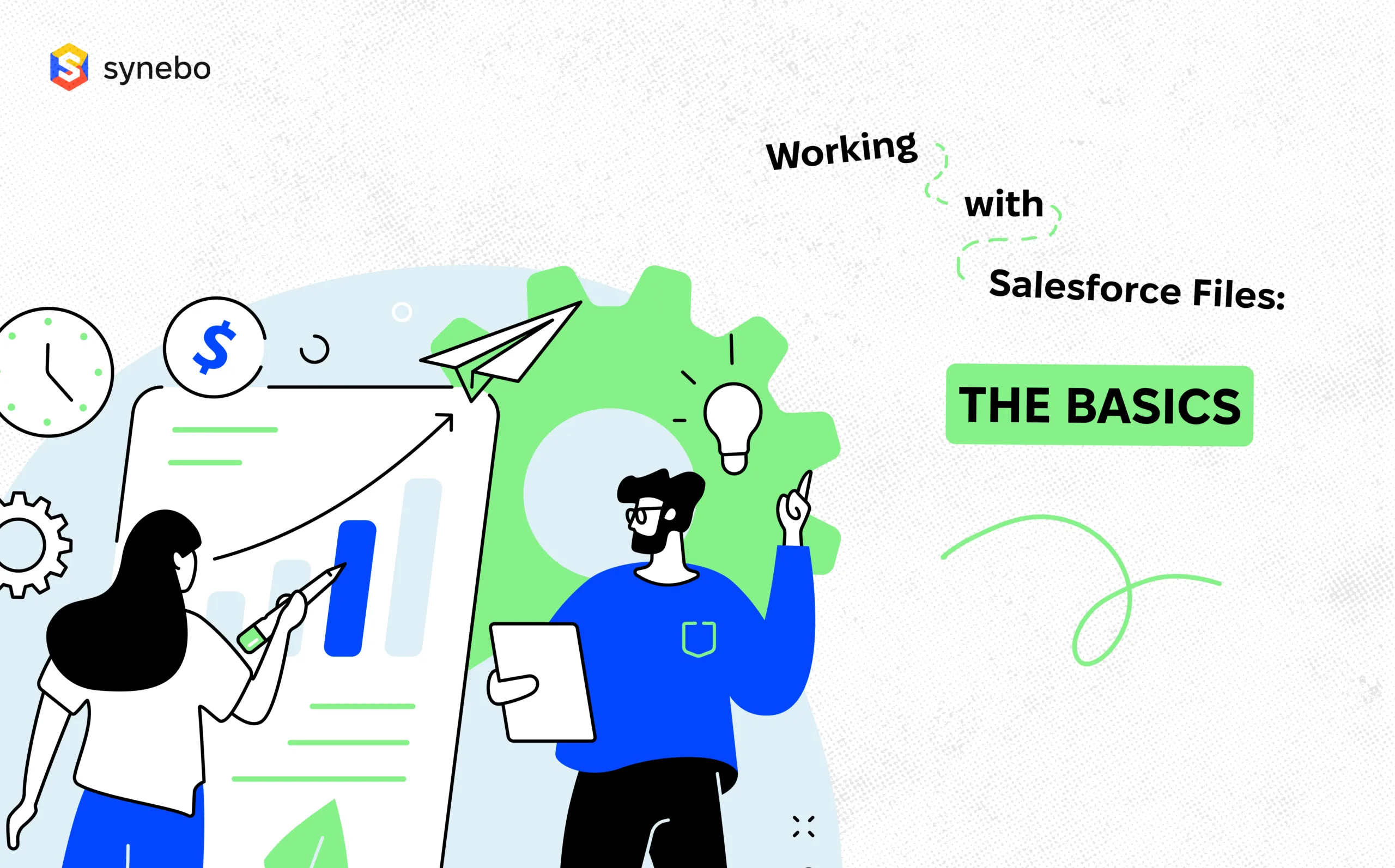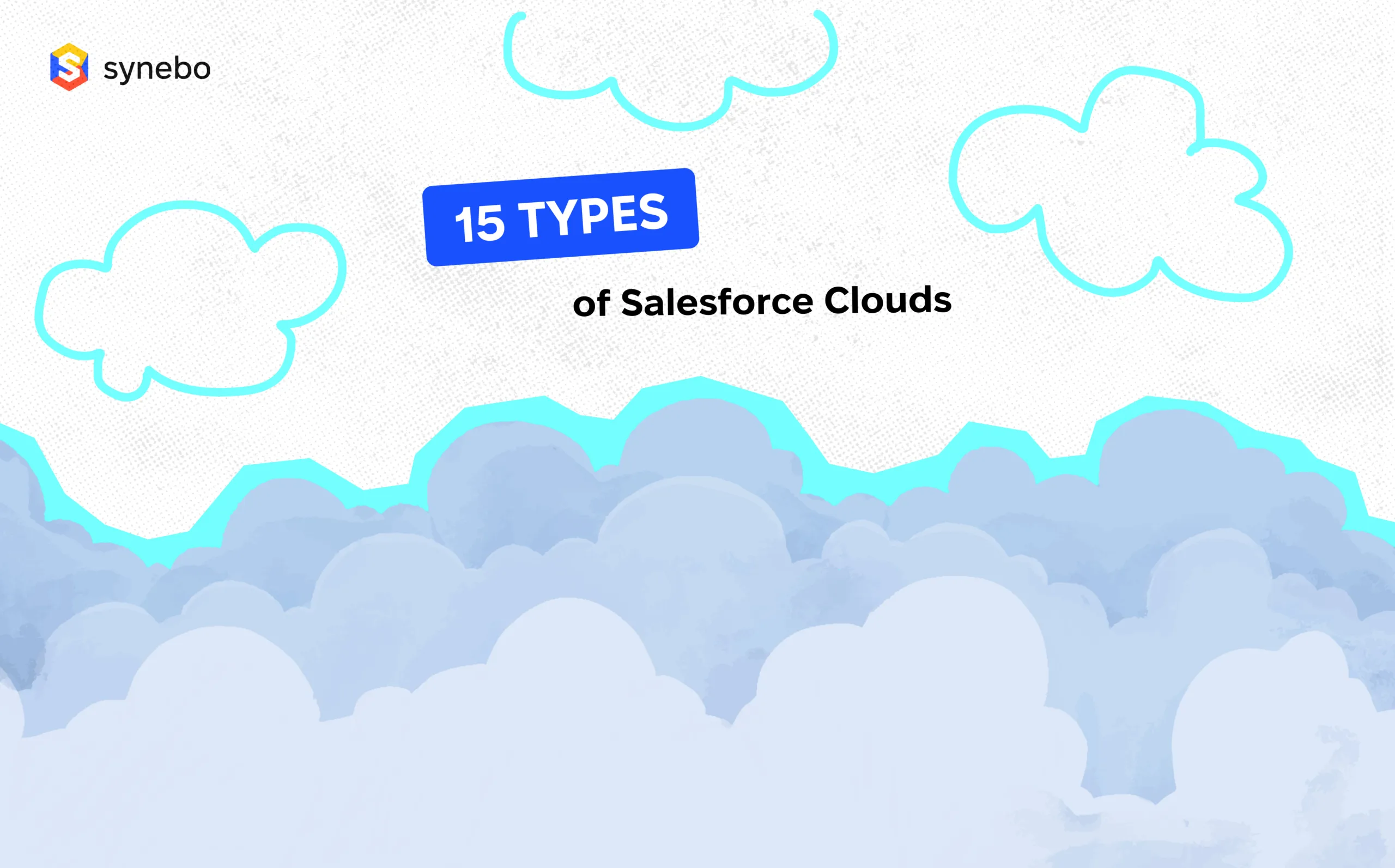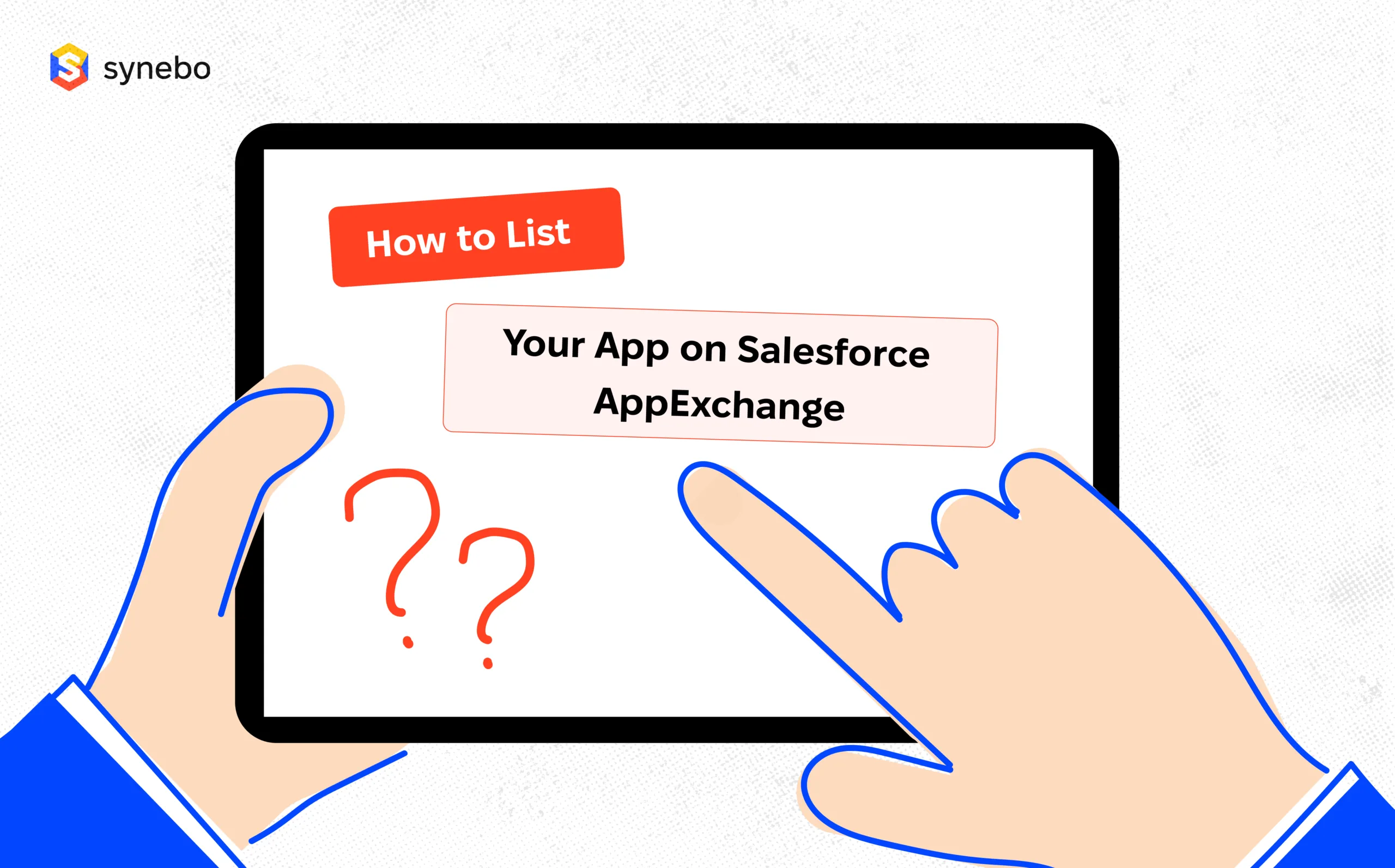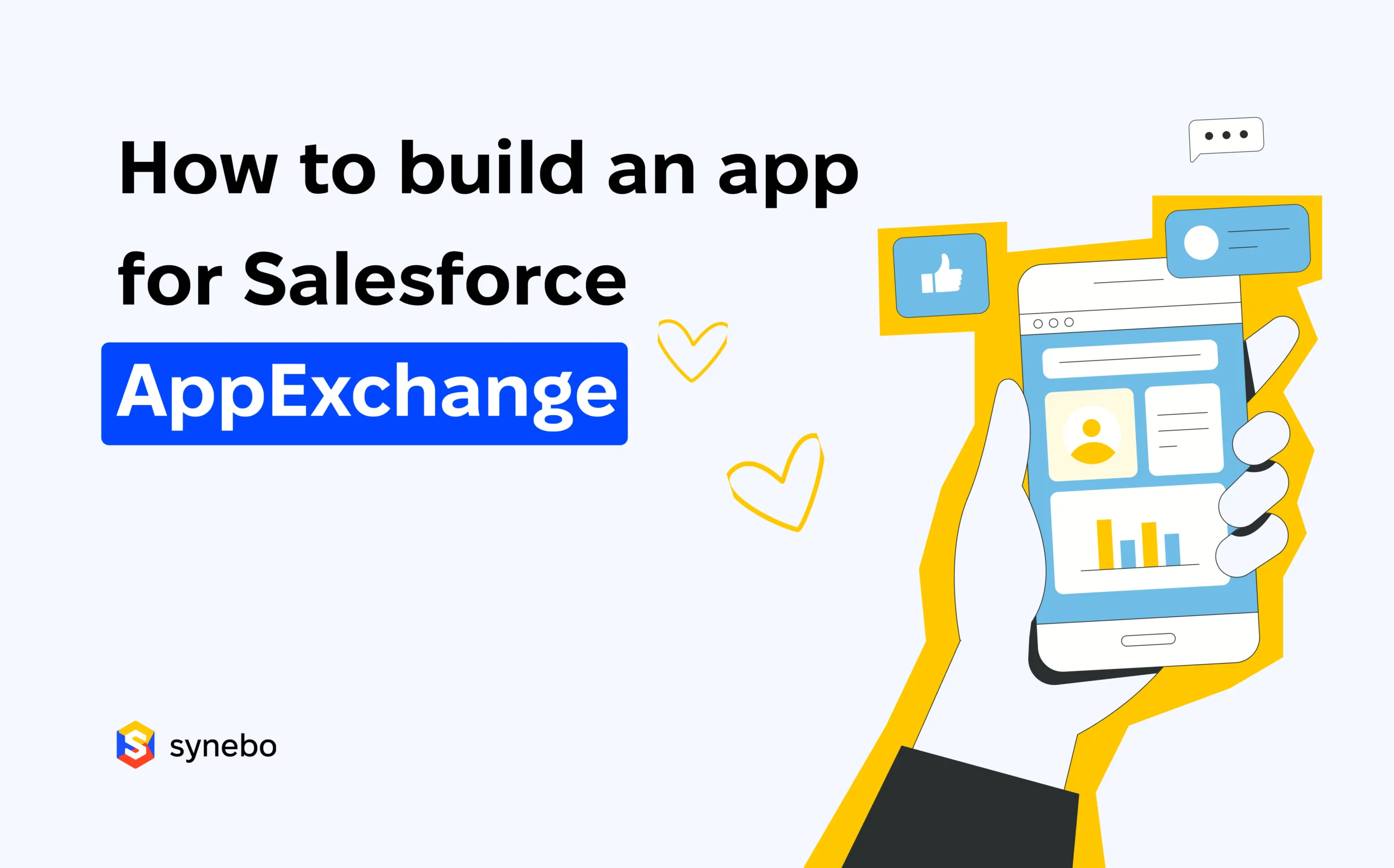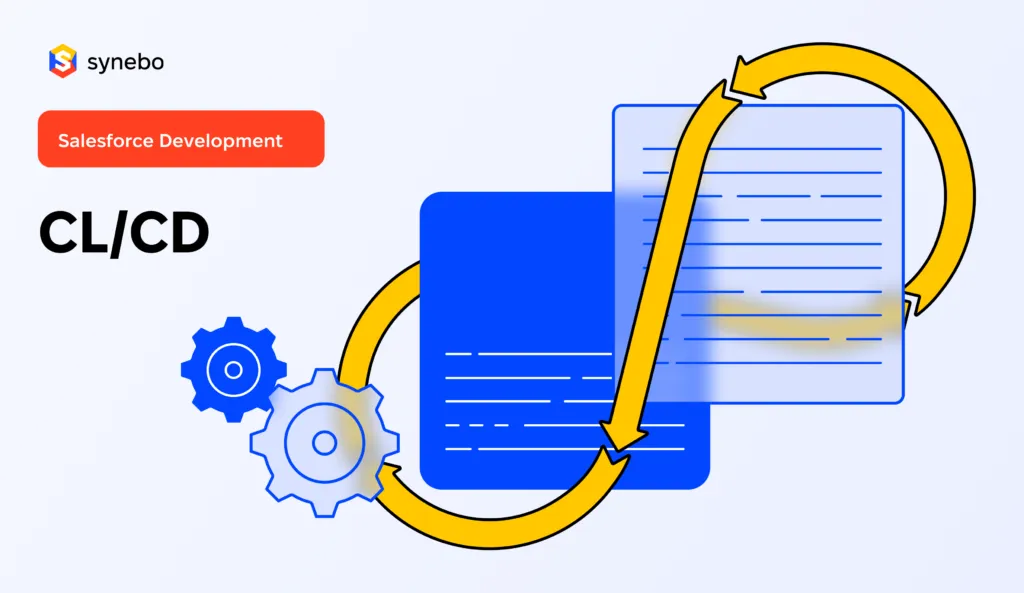Salesforce Data Management Best Practices: What You Need to Know
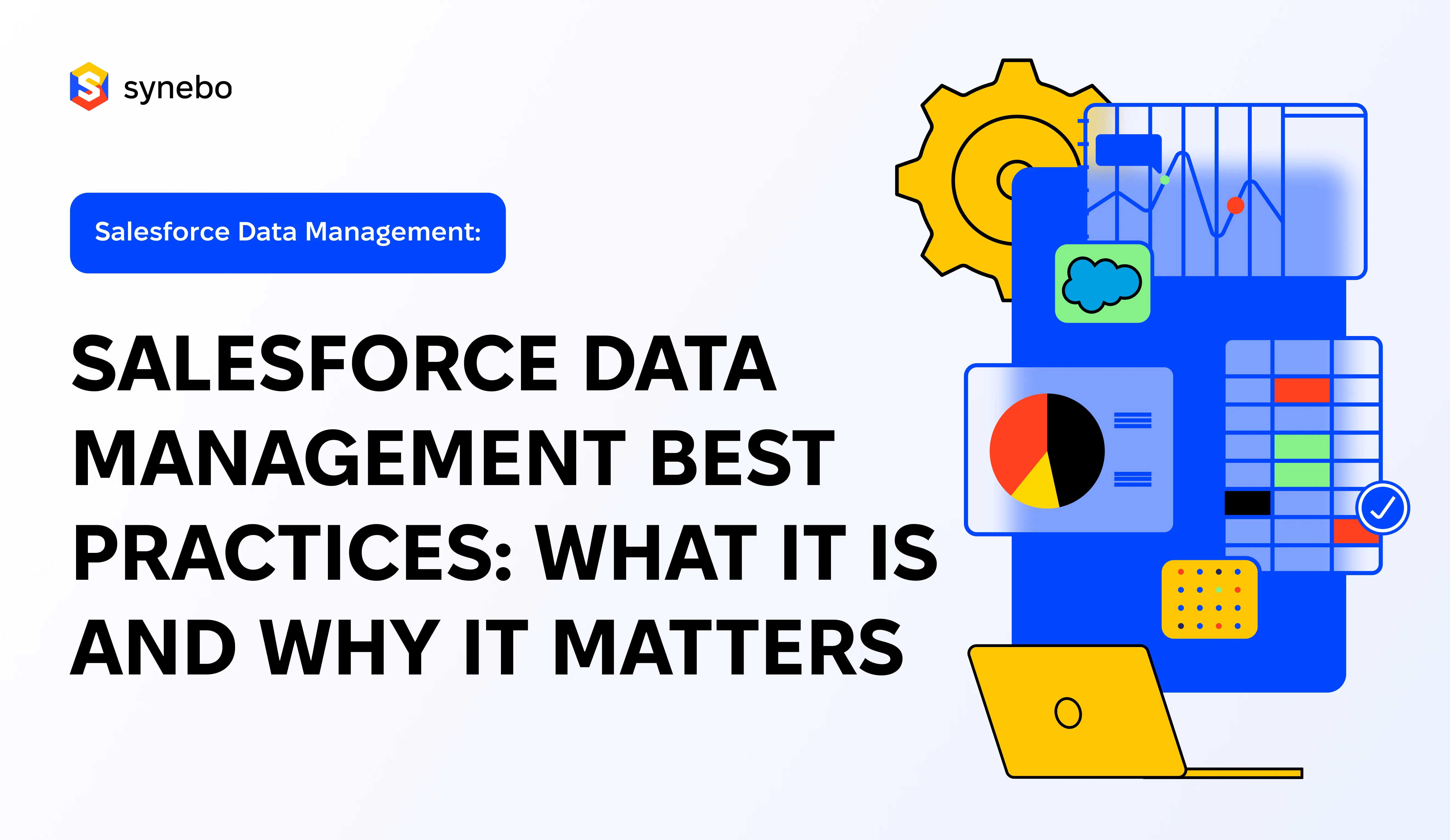
Statistics reveal that 87% of analytics and IT leaders believe that advances in AI have made data management a higher priority. Additionally, companies that effectively integrate their data can reveal new opportunities 39% more frequently and apply AI to generate insights 54% more effectively than those who do not.
Given such trends, data management becomes an essential aspect of any business. As a Salesforce development company, Synebo understands the importance of having Salesforce data management best practices in place to derive maximum value from this powerful tool.
In this article, you will explore what Salesforce data management is, why it matters, and the best practices to ensure its success.
Understanding Salesforce CRM
Salesforce data management encompasses the processes, strategies, and tools used to acquire, organize, maintain, and utilize data within the CRM platform.
Salesforce data management includes managing data quality, ensuring efficient data integration, and implementing robust data security measures.
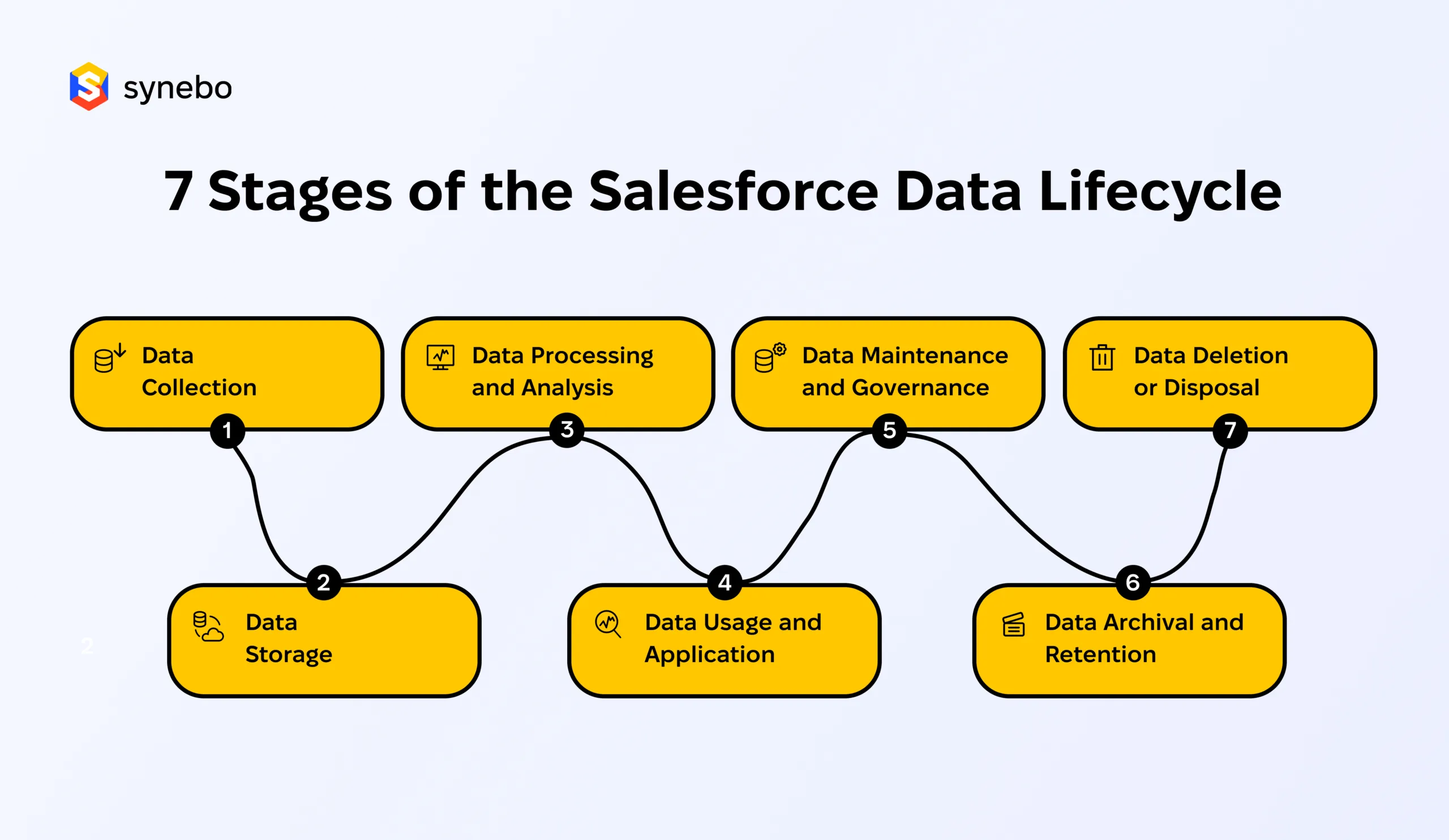
At its core, Salesforce data management involves the efficient and effective handling of data to support business operations and decision-making. It involves creating a structured framework for data storage, processing, and analysis within the Salesforce ecosystem.
The Importance of Data Management in Salesforce
Effective data management is vital for businesses that rely on Salesforce to drive their sales, marketing, and customer service efforts. Here’s why:
- Data Quality. Poor data quality can lead to inaccurate insights and flawed decision-making. By implementing data management best practices, businesses can ensure the accuracy, consistency, and completeness of their data, thus boosting the reliability of their analytics and reporting.
- Data Integration. Salesforce is often integrated with various data sources and systems, such as ERP, marketing automation, and customer support platforms. Robust data management practices facilitate seamless integration, enabling businesses to harness the power of centralized data for a holistic view of their customers and operations.
- Data Security. As the custodian of sensitive customer and business data, Salesforce must be fortified with robust security measures. Effective data management practices ensure data privacy, regulatory compliance, and protection against unauthorized access or breaches.
Furthermore, data management in Salesforce goes beyond just the technical aspects. It also involves establishing clear data governance policies and procedures to ensure that data is used ethically and responsibly. This includes defining data ownership, access controls, and data retention policies to align with legal and industry-specific regulations.
In addition, ongoing monitoring and maintenance is necessary if you want to master data management in Salesforce. This involves regularly auditing data quality, identifying and resolving data inconsistencies, and updating data models to accommodate changing business requirements. By continuously improving data management practices, businesses can maximize the value of their Salesforce investment and drive better business outcomes.
Ready to supercharge your Salesforce experience? Discover our expert Salesforce consulting services.
Key Components of Salesforce Data Management
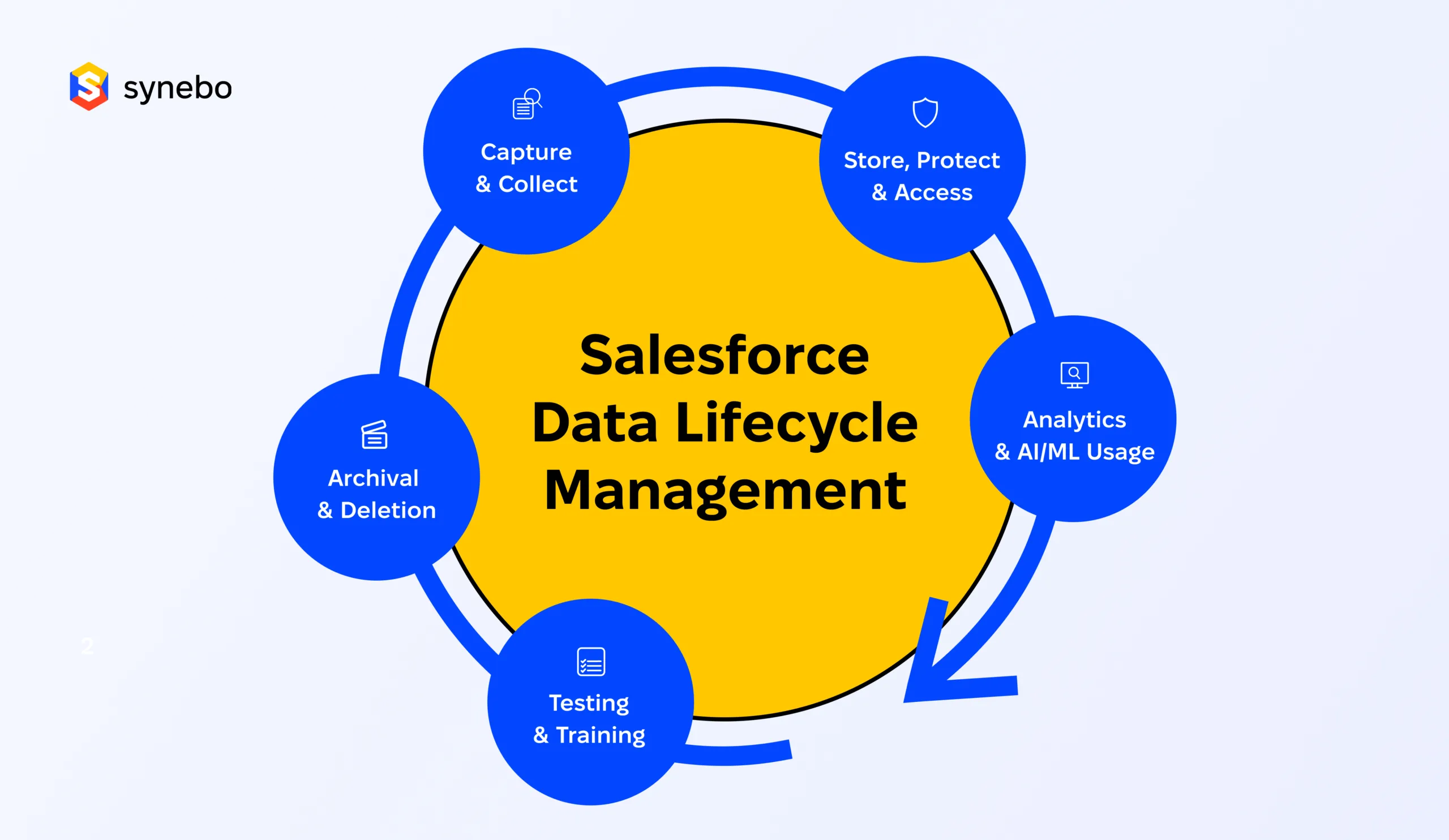
Now that we understand the importance of data management in Salesforce, let’s delve into its key components:
- Data Quality
Data quality refers to the accuracy, consistency, and relevance of data within Salesforce. It involves implementing data validation rules, data cleansing techniques, and ongoing data enrichment strategies to ensure high-quality data. For example, organizations can leverage data validation rules to enforce proper formatting for phone numbers, email addresses, and zip codes.
Furthermore, data quality is crucial for effective decision-making and business operations. By maintaining clean and reliable data, organizations can avoid costly errors, improve customer satisfaction, and drive better insights through accurate reporting and analytics.
- Data Integration
Data integration involves the seamless flow of data between Salesforce and other systems or databases. It ensures that data from various sources is accurately and timely synchronized within Salesforce. Integration tools, such as Salesforce Connect or third-party integration platforms, enable businesses to establish real-time connections with external data sources and automate data synchronization.
In addition, data integration plays a vital role in enabling a 360-degree view of customers. By consolidating data from different touchpoints and systems, businesses can gain a comprehensive understanding of their customers’ interactions, preferences, and behaviors. This holistic view allows organizations to personalize customer experiences, target marketing efforts effectively, and drive customer loyalty and retention.
- Data Security
Data security involves implementing robust access controls, encryption techniques, and data loss prevention measures to safeguard sensitive information. Organizations can restrict user access based on roles and profiles, encrypt sensitive data at rest and in transit, and monitor data activity to identify any potential security vulnerabilities.
Moreover, data security compliance, such as GDPR or HIPAA, is essential for organizations handling sensitive data. By adhering to regulatory requirements and industry standards, businesses can build trust with customers, mitigate risks of data breaches, and avoid costly penalties. Implementing a comprehensive data security strategy not only protects the organization’s reputation but also instills confidence in customers regarding the privacy and security of their data.
Ensure your Salesforce is running at its best: Follow our comprehensive guide to conducting a Salesforce health check.
Best Practices for Data Management in Salesforce
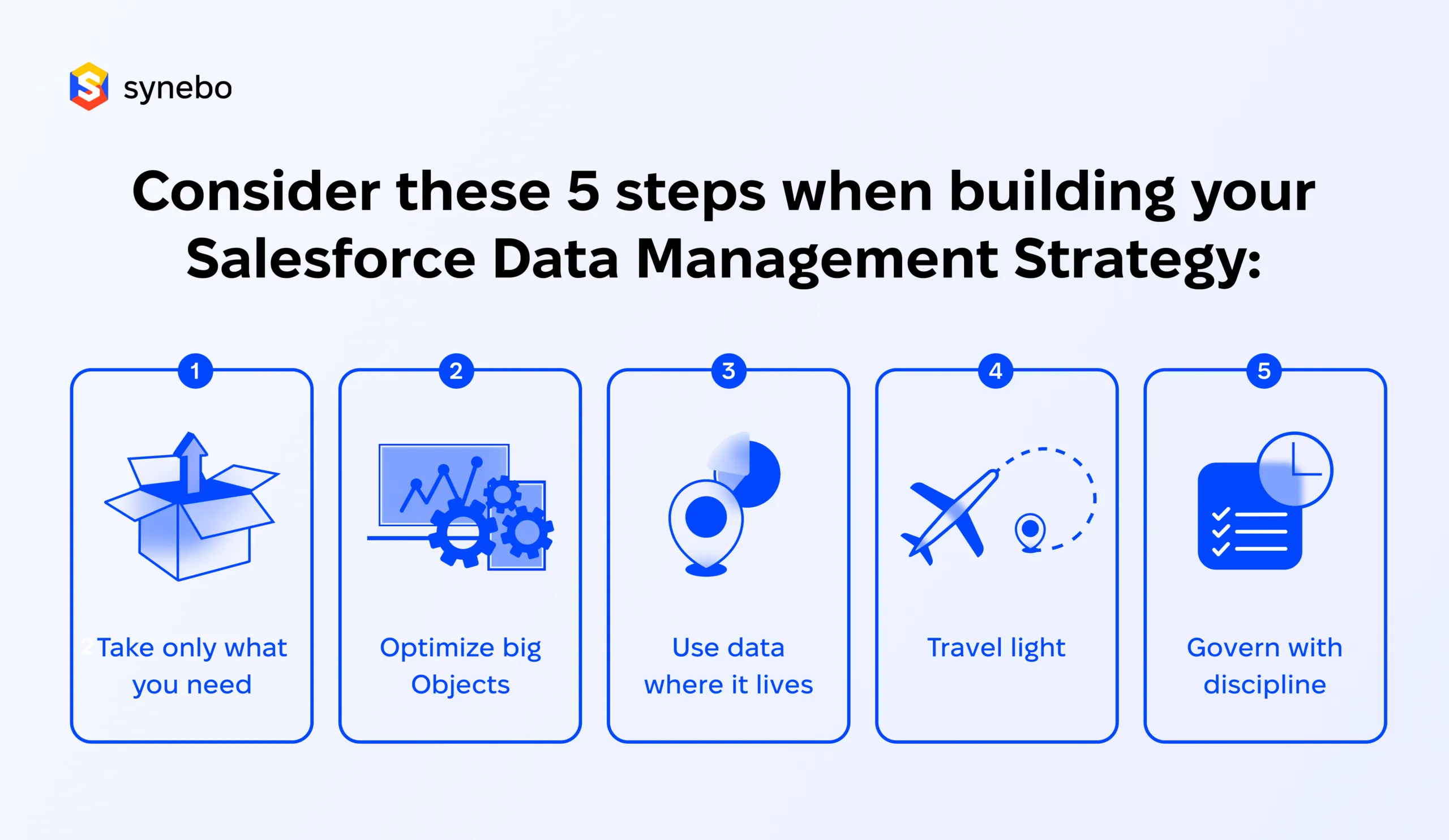
Now that we have a clear understanding of the key components, let’s explore the best practices to master data management in Salesforce:
Regular Data Audits
Regularly auditing your data helps identify and rectify any inaccuracies, inconsistencies, or duplications. Conducting data audits allows businesses to clean up their data, ensuring that it remains accurate, relevant, and up to date. Data auditing can be a manual process or automated using data quality tools or Salesforce’s built-in data cleansing functionalities.
When performing data audits, it is essential to establish clear criteria for evaluating data quality. This includes defining standards for data accuracy, completeness, and consistency. By setting specific benchmarks, organizations can effectively measure the quality of their data and identify areas that require improvement. Additionally, documenting the audit process and findings is crucial for tracking progress over time and ensuring continuous data quality.
Implementing Data Governance
Data governance involves establishing policies, processes, and roles to ensure the effective management and utilization of data. It includes defining data ownership, establishing data stewardship roles, and implementing data management guidelines. By implementing data governance practices, organizations can ensure accountability, data consistency, and compliance with internal and external regulations.
Effective data governance also involves establishing data quality standards and monitoring mechanisms to enforce them. This includes defining data quality metrics, setting up data quality monitoring tools, and implementing processes for data quality issue resolution. By proactively managing data quality through robust governance practices, organizations can enhance decision-making, improve operational efficiency, and build trust in their data assets.
Utilizing Salesforce Data Management Tools
There are numerous data management tools available in the Salesforce ecosystem that can streamline and automate data management processes. These tools can range from data cleansing and deduplication solutions to data integration and migration tools. By leveraging these tools, businesses can improve data quality, streamline data integration, and simplify data migration processes.
When selecting Salesforce data management tools, organizations should consider factors such as scalability, compatibility with existing systems, and ease of integration. It is also important to regularly evaluate and update data management tools to ensure they align with evolving business needs and technological advancements. By staying informed about the latest data management tools in Salesforce and technologies, organizations can optimize their data management processes and drive better business outcomes.
|
Best Practice |
Example Tool/Method |
|
Regular Data Audits |
Salesforce Data Cleanse |
|
Implementing Data Governance |
Data Stewardship Roles |
|
Utilizing Data Management Tools |
Salesforce Connect |
|
Ensuring Data Security |
Two-Factor Authentication |
Streamline your business processes with seamless Salesforce integration. Explore our Salesforce integration services.
The Impact of Effective Salesforce Data Management
Now that we have explored the best practices for data management in Salesforce, let’s understand the impact it can have on your business:
|
Benefit |
Improvement Statistic |
|
Enhanced Decision-Making |
54% more effective AI insights |
|
Improved Customer Relationships |
39% more new opportunities |
|
Increased Operational Efficiency |
68% reduction in manual entry |
|
Customer Data Protection |
75% increase in security measures |
Enhanced Decision-Making
By ensuring the accuracy and reliability of your data, effective data management enables businesses to make informed decisions based on factual insights. Access to reliable data enhances forecasting accuracy, enables personalized customer experiences, and supports data-driven strategies for growth and optimization.
Improved Customer Relationships
With centralized, accurate, and up-to-date customer data, businesses can deliver personalized experiences, improve response times, and foster stronger customer relationships. Salesforce data management allows organizations to gain a 360-degree view of their customers, enabling targeted marketing campaigns, efficient sales processes, and exceptional customer service.
Increased Operational Efficiency
Efficient Salesforce data architecture and management optimizes business processes, reduces manual efforts, and improves operational efficiency. Data integration eliminates manual data entry, duplicate records, and data silos, allowing for streamlined workflows and faster access to critical information. This ultimately leads to increased productivity and reduced operational costs.
Customer Data Protection
Furthermore, effective data management in Salesforce can also have a significant impact on data security and compliance. By implementing robust data management practices, businesses can ensure that sensitive customer information is protected from unauthorized access and data breaches. Compliance with regulations such as GDPR and CCPA becomes easier when data is accurately managed and securely stored within Salesforce.
Empowering Sales and Marketing Teams
Another key benefit of efficient Salesforce data management is the empowerment of sales and marketing teams. By providing these teams with accurate and up-to-date customer data, businesses can enable targeted sales efforts, personalized marketing campaigns, and improved lead generation. This leads to higher conversion rates, increased revenue, and a more efficient allocation of resources within the organization.
Dive into the world of Marketing Cloud: Learn how to create a data extension and optimize your campaigns.
Overcoming Common Challenges in Salesforce Data Management
Despite the benefits, Salesforce data management can present its fair share of challenges. Let’s explore some common challenges and ways to overcome them:
Dealing with Data Duplication
Data duplication can lead to inefficiencies, inaccuracies, and hinder the effectiveness of data analysis. Utilizing deduplication tools, implementing validation rules, and establishing data cleansing processes can help identify and eliminate duplicate records within Salesforce.
One additional strategy to tackle data duplication is to create unique identifiers for records, enabling easier detection and merging of duplicate entries. Regularly conducting data audits and providing training to users on best practices for data entry can also contribute to maintaining a clean and accurate database.
Navigating Data Migration
Data migration is often a complex process, requiring careful planning, data mapping, and validation. By leveraging data migration tools, businesses can streamline the migration process, automate data mappings, and perform rigorous testing to ensure a seamless transition to Salesforce.
In addition to using data migration tools, establishing a data governance framework can help standardize data formats, naming conventions, and data quality protocols across different systems. This framework can facilitate smoother data migrations and ongoing data management efforts, reducing the risk of errors and inconsistencies.
Ensuring Data Security and Compliance
Data security and compliance are critical considerations when managing data within Salesforce. Organizations should implement robust security measures, such as two-factor authentication, IP restrictions, and data encryption, to protect sensitive information. Regular security audits, monitoring, and staff training are essential to ensure ongoing compliance with industry regulations.
Furthermore, conducting regular risk assessments and staying informed about data protection laws and regulations can help organizations proactively address security threats and compliance challenges. Implementing data access controls based on user roles and responsibilities can also enhance data security within Salesforce, limiting unauthorized access to sensitive data.
Unlock the full potential of Salesforce with our top-notch Salesforce implementation services.
Future Predictions for Data Management in Salesforce
As technology continues to advance, the future of Salesforce data management holds exciting possibilities. Let’s explore some emerging trends:
- Artificial Intelligence
Imagine a world where Salesforce not only stores and organizes your data, but also actively analyzes it for you. With AI, businesses can have a virtual data scientist at their fingertips, constantly monitoring and optimizing their data management processes.
From identifying and resolving data quality issues to predicting customer behavior, AI can revolutionize the way businesses leverage their Salesforce data. AI-powered tools can automate data cleansing, predictive analytics, and anomaly detection, allowing businesses to glean valuable insights from their data and make proactive decisions.
- Predictive analytics
Predictive analytics leverages historical and real-time data to forecast future trends, behaviors, and outcomes. By implementing predictive analytics within Salesforce, businesses can proactively identify opportunities, mitigate risks, and strategically plan their sales and marketing initiatives.
With predictive analytics, businesses can unlock a whole new level of data-driven decision-making. By analyzing patterns and trends in their Salesforce data, organizations can make informed predictions about future outcomes and take proactive measures to drive success.
- Continuous learning and adaptation
As technology evolves, so should Salesforce data architecture and management strategies. Businesses must embrace continuous learning and adapt their data management practices to keep pace with the ever-changing Salesforce landscape. Staying informed about new features, trends, and best practices is key to unlocking the full potential of Salesforce data management.
Continuous learning and adaptation go hand in hand with the concept of agility. In a rapidly changing business environment, organizations that can quickly adapt their data management strategies will have a competitive edge. Whether it’s adopting new data integration techniques, exploring innovative data visualization tools, or staying updated on the latest Salesforce updates, businesses must prioritize ongoing education and evolution.
Effective data management in Salesforce is crucial for businesses to derive maximum value from their CRM investment. By implementing Salesforce data management best practices, organizations can unlock the power of Salesforce to enhance decision-making, improve customer relationships, and increase operational efficiency.
At Synebo, we are committed to helping businesses navigate the complexities of Salesforce data management and optimize their data-driven strategies for success. As a certified Salesforce partner and PDO, we specialize in developing and enhancing custom CRM solutions tailored to your unique business needs. From comprehensive Salesforce Consulting to expert Development and Integration services, our team of professionals is dedicated to ensuring your success.
Contact us today and let’s transform your Salesforce strategy into a competitive advantage.


